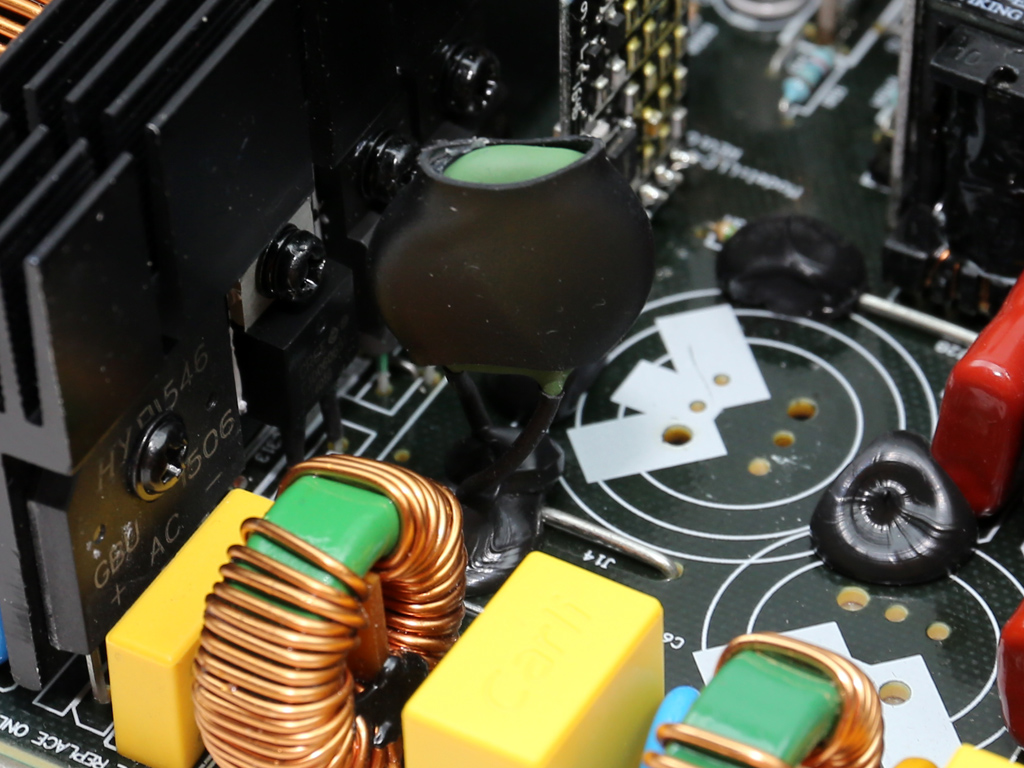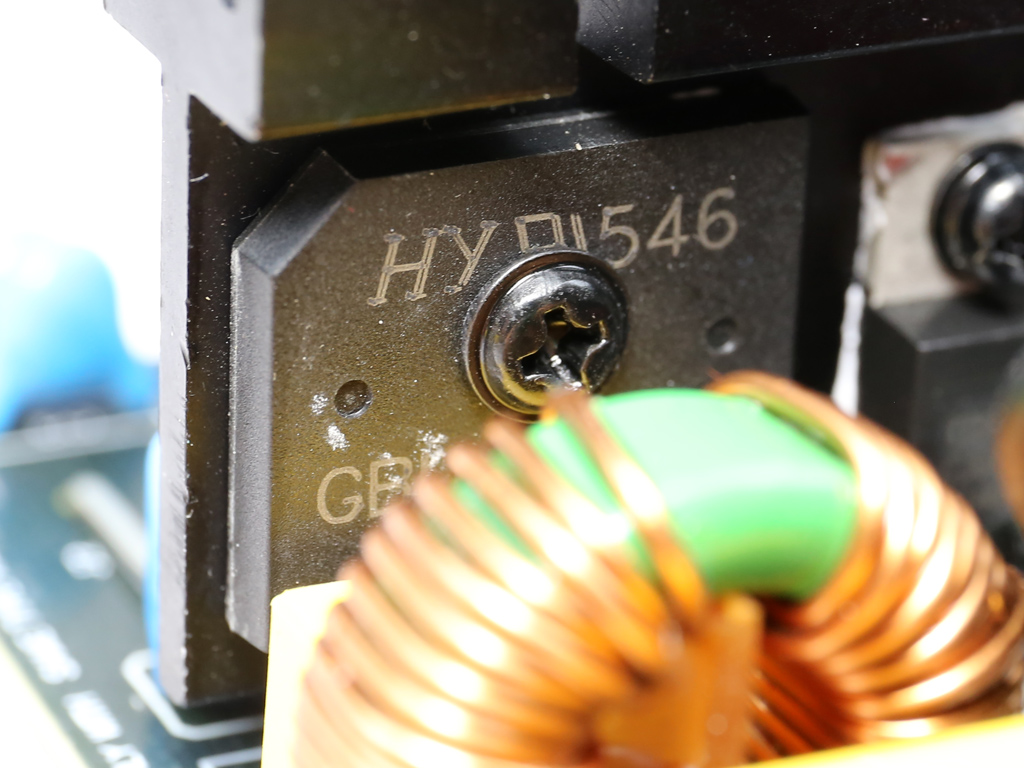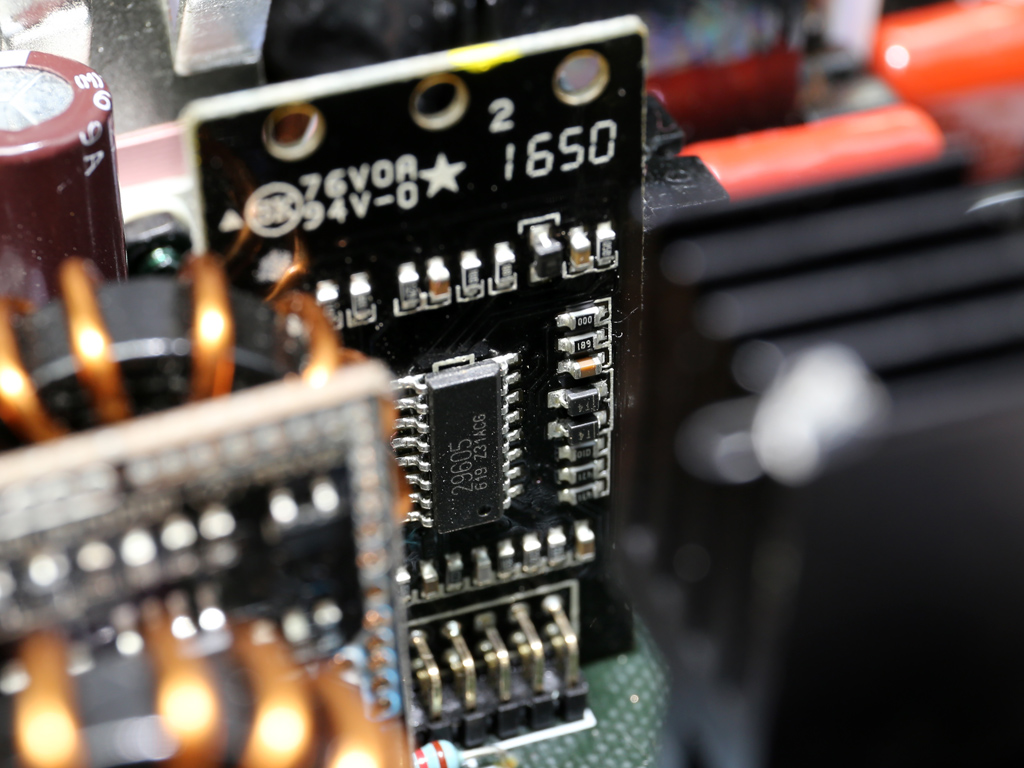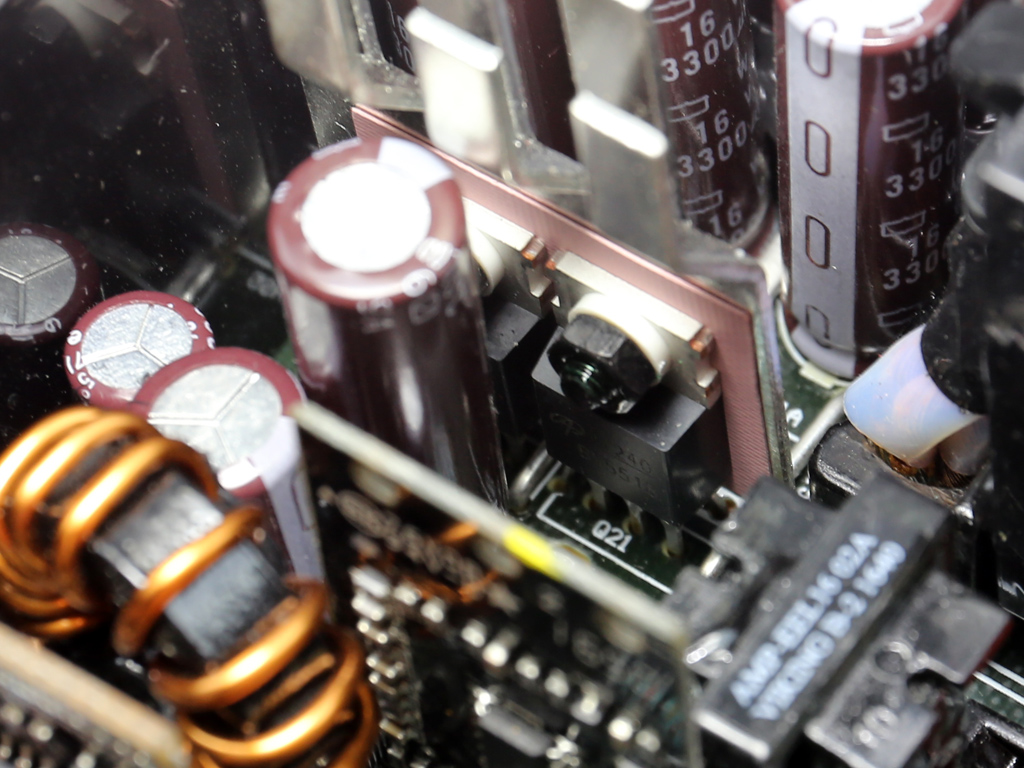EVGA 750 B3 PSU Review
Why you can trust Tom's Hardware
Teardown & Component Analysis
Parts Description
Before proceeding with this page we strongly encourage you to a look at our PSUs 101 article, which provides valuable information about PSUs and their operation, allowing you to better understand the components we're about to discuss. Our main tools for disassembling PSUs are a Thermaltronics soldering and rework station and a Hakko FR-300 desoldering gun. Finally, for the identification of tiny parts we use an Andonstar HDMI digital microscope.
| General Data | |
|---|---|
| Manufacturer (OEM) | Super Flower |
| Platform Model | Leadex Bronze |
| Primary Side | |
| Transient Filter | 5x Y caps, 3x X caps, 2x CM chokes, 1x MOV |
| Inrush Protection | NTC Thermistor |
| Bridge Rectifier(s) | GBU1506 (600V, 15A @ 100°C) |
| APFC MOSFETs | 2x Infineon IPA50R199CP (550V, 11A @100°C, 0.199Ω) |
| APFC Boost Diode | 1x CREE C3D06065A (650V, 6A @ 150°C) |
| Hold-up Cap | 1x Nippon Chemi-Con (400V, 470uF, 95°C, CE) |
| Main Switchers | 2x Infineon IPA50R199CP (550V, 11A @ 100°C, 0.199Ω) |
| APFC Controller | SF29603 & S9602 & ICE3PCS02G |
| Topology | Primary side: Half-Bridge & LLC Resonant Controller Secondary side: Synchronous Rectification & DC-DC converters |
| Secondary Side | |
| +12V MOSFETs | 4x A&O AOT240L (40V, 82A @ 100°C, 4.7mΩ @ 125°C) |
| 5V & 3.3V | DC-DC Converters: 8x A&O AON6516 (30V, 25A @ 100°C, 8mΩ) PWM Controller: 2x On Semiconductor NCP1587A |
| Filtering Capacitors | Electrolytics: Chemi-Con 7x W, 3x KZE, 3x KY, 2x KMG, 7x KRG (modular board) Polymers: 7x Chemi-Con |
| Supervisor IC | SF29603 & LM339A |
| Fan Model | S1282412H (120mm, 12V, 0.35A, Sleeve Bearing) |
| 5VSB Circuit | |
| Rectifier | Mospec S10C60C |
| Standby PWM Controller | 29604 |
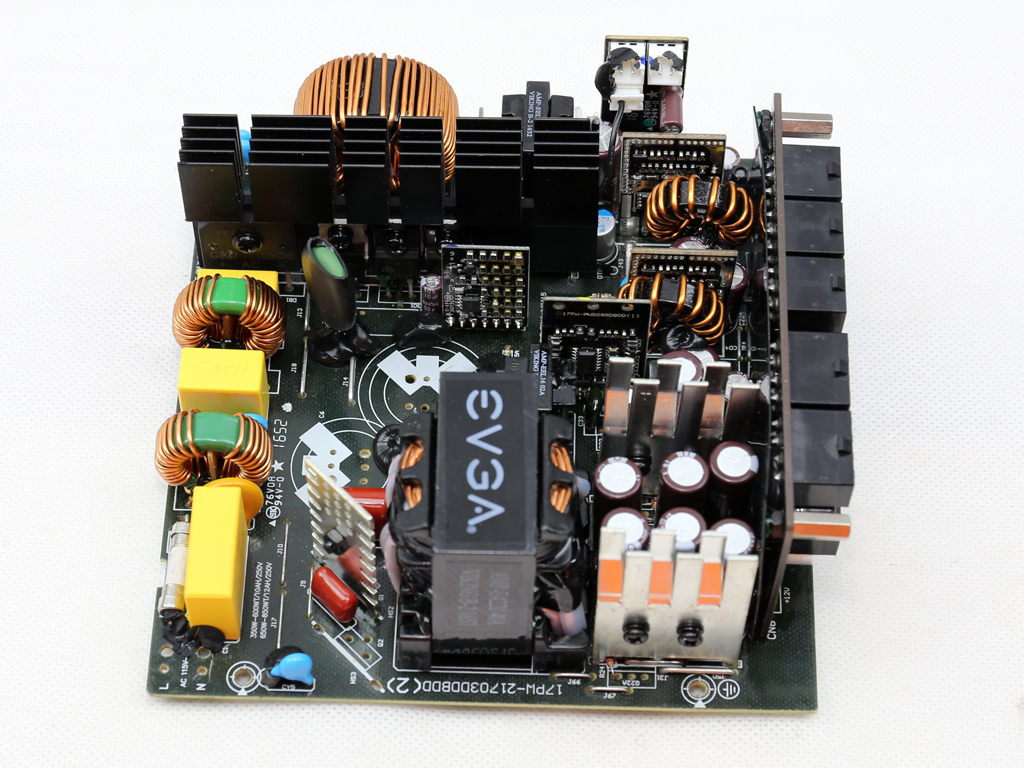
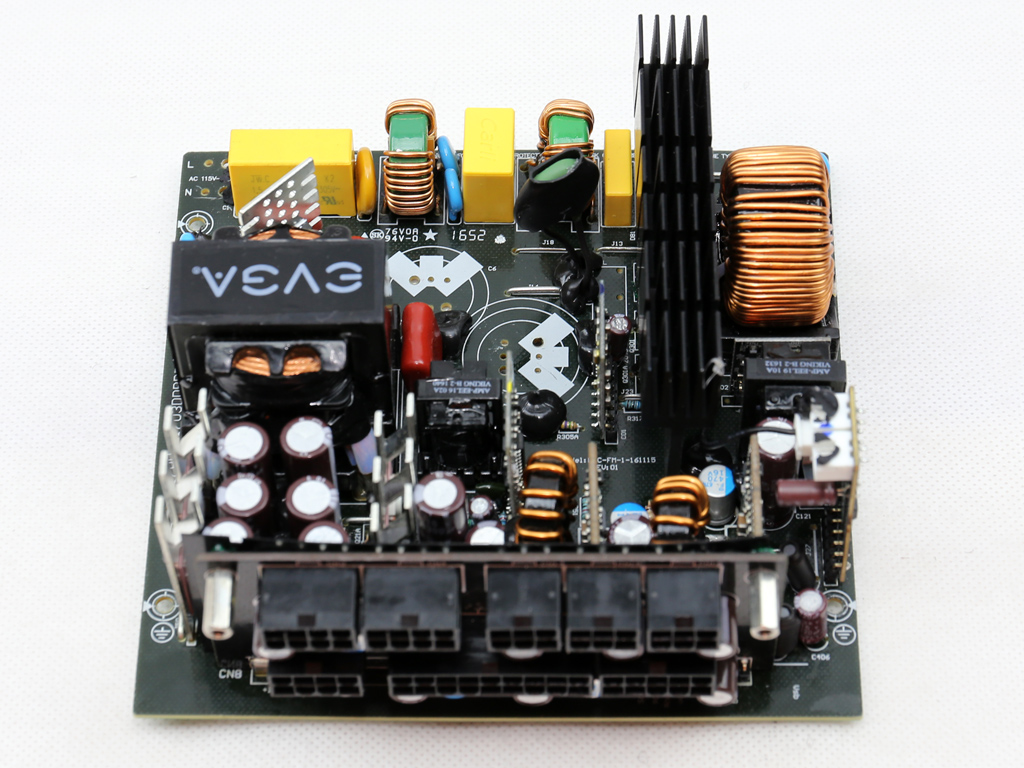
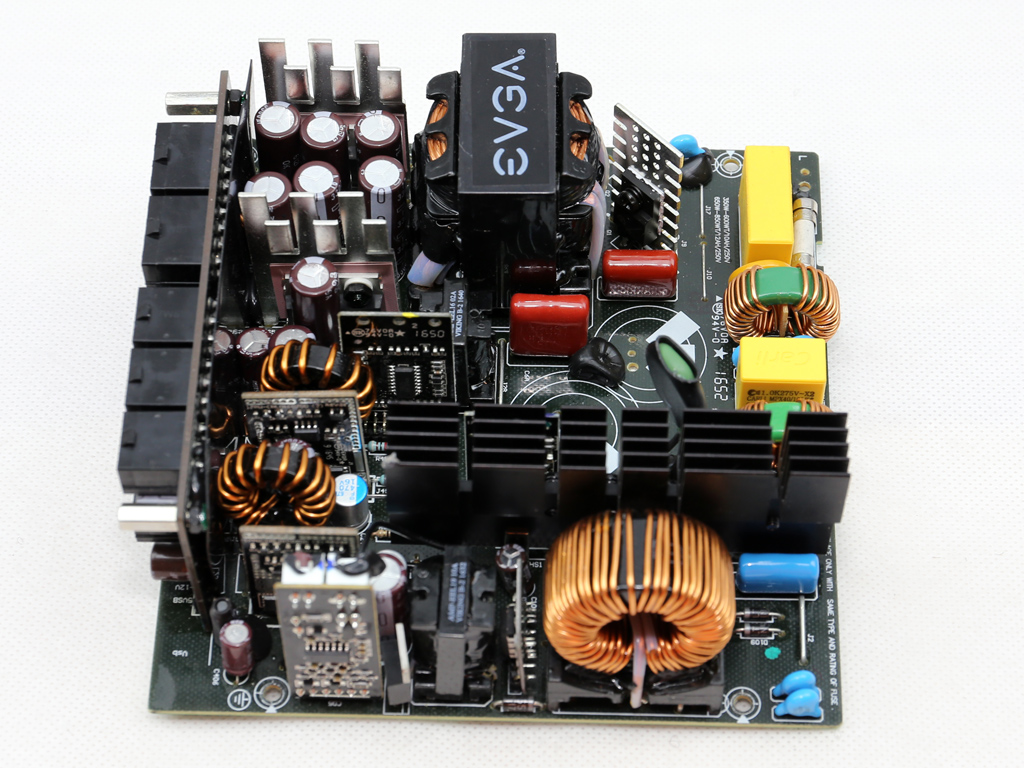
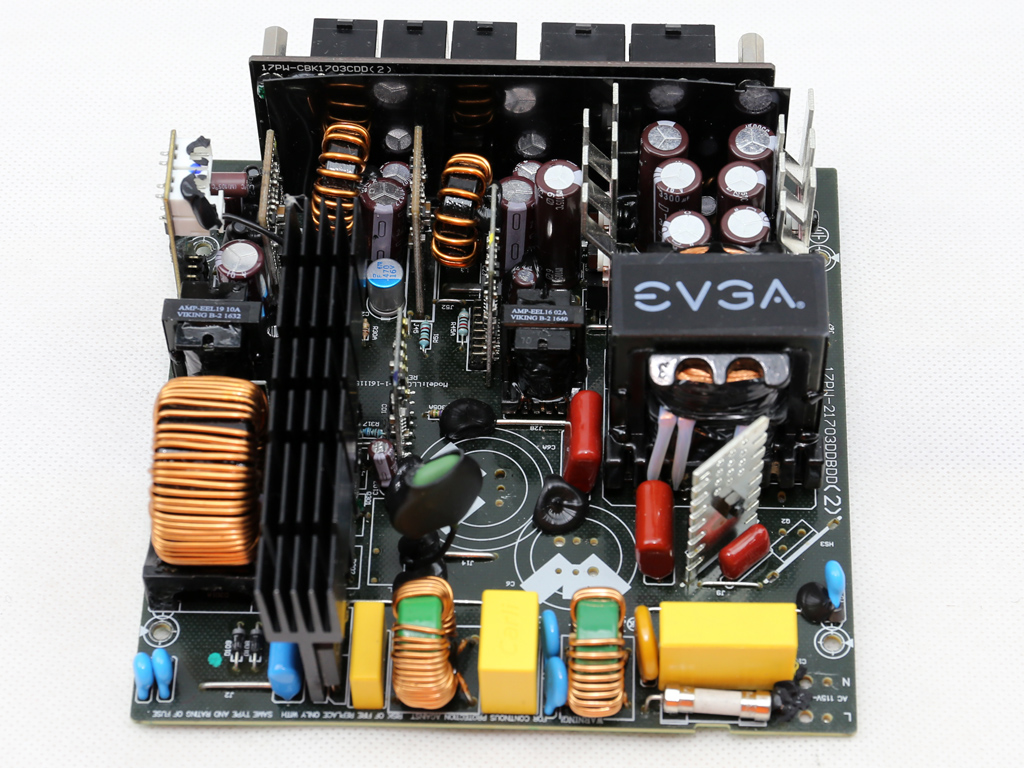
As mentioned, the 750 B3 shares a platform with the 850 B3; only a few component changes reflect its lower capacity. This is a highly capable design, especially for its efficiency level. We know it's modern, since a half bridge topology is combined with an LLC resonant converter on the primary side. On the secondary side, a number of FETs regulate the +12V rail, while a couple of DC-DC converters take care of the minor rails. All caps are provided by Chemi-Con. Super Flower must be using specially-made capacitors (W series), since we can't find any information about them. We would prefer less secrecy surrounding those W caps. Otherwise, we have to assume they're budget-oriented products. If they were good, EVGA would be talking up their longevity.
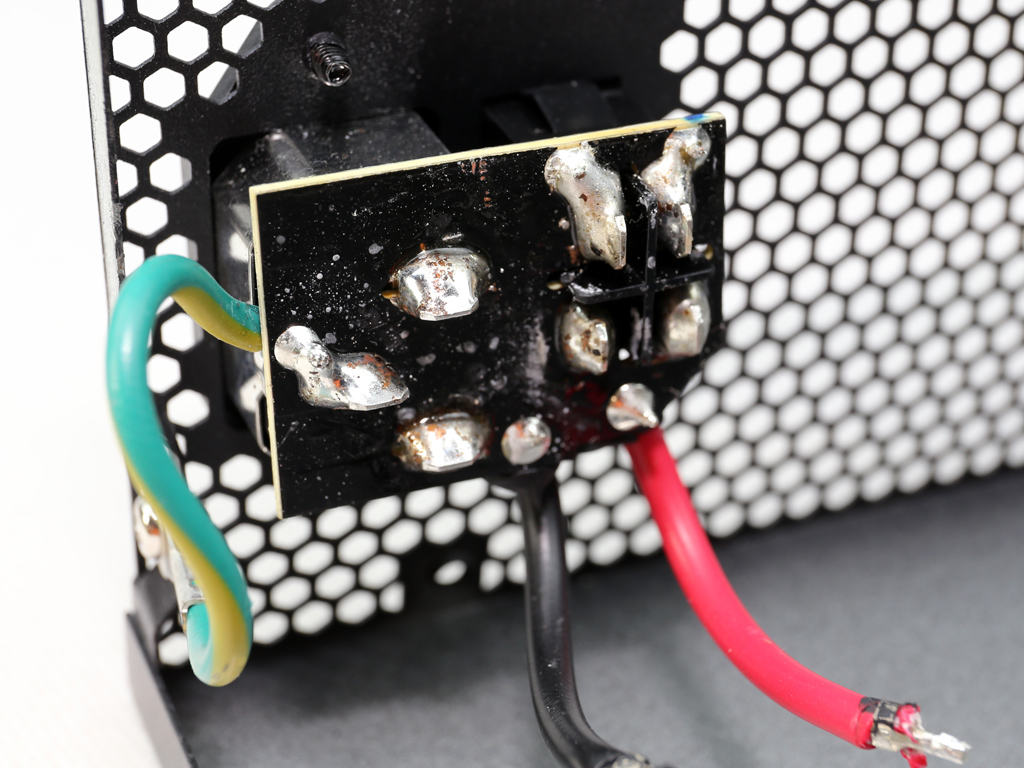
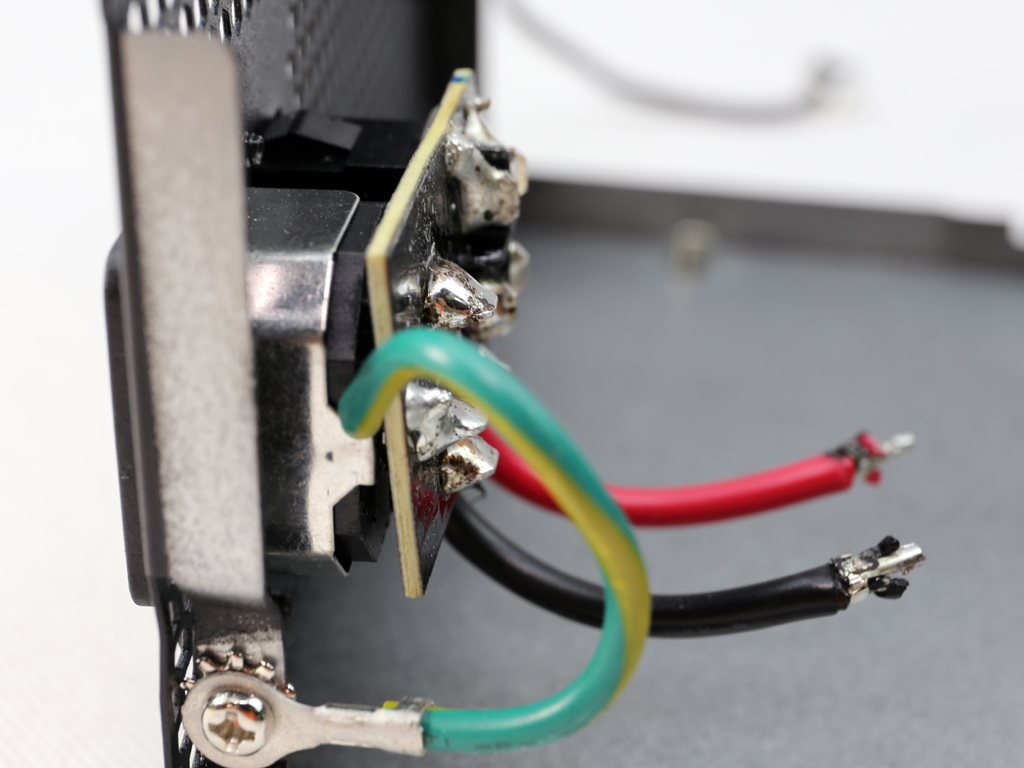
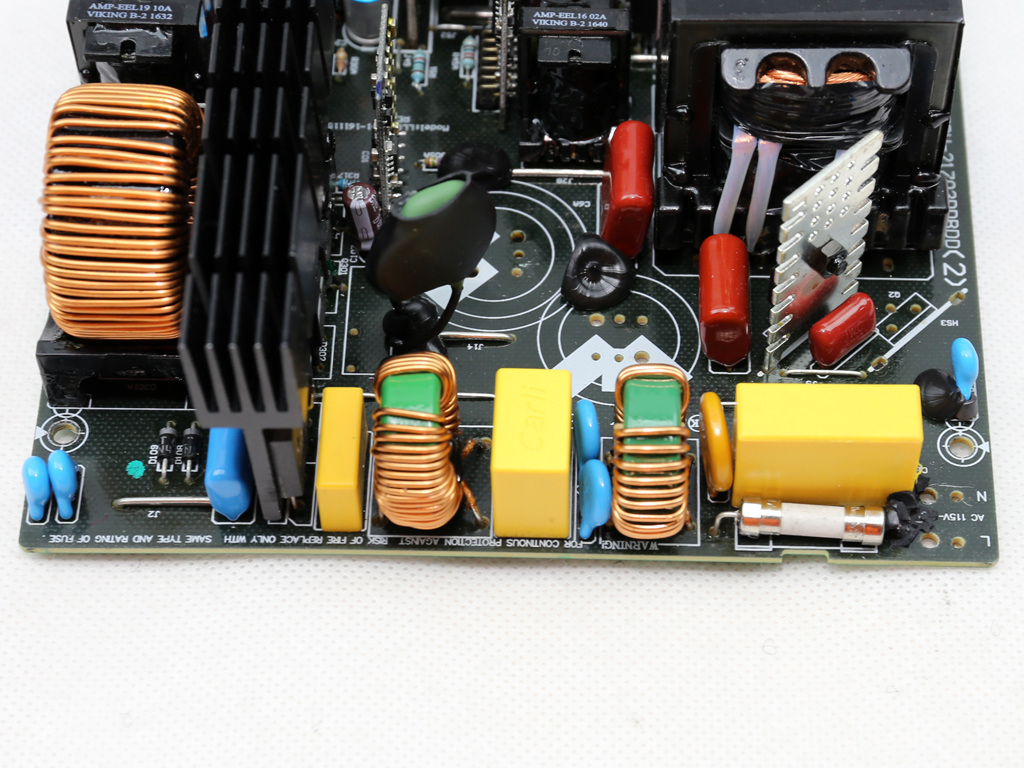
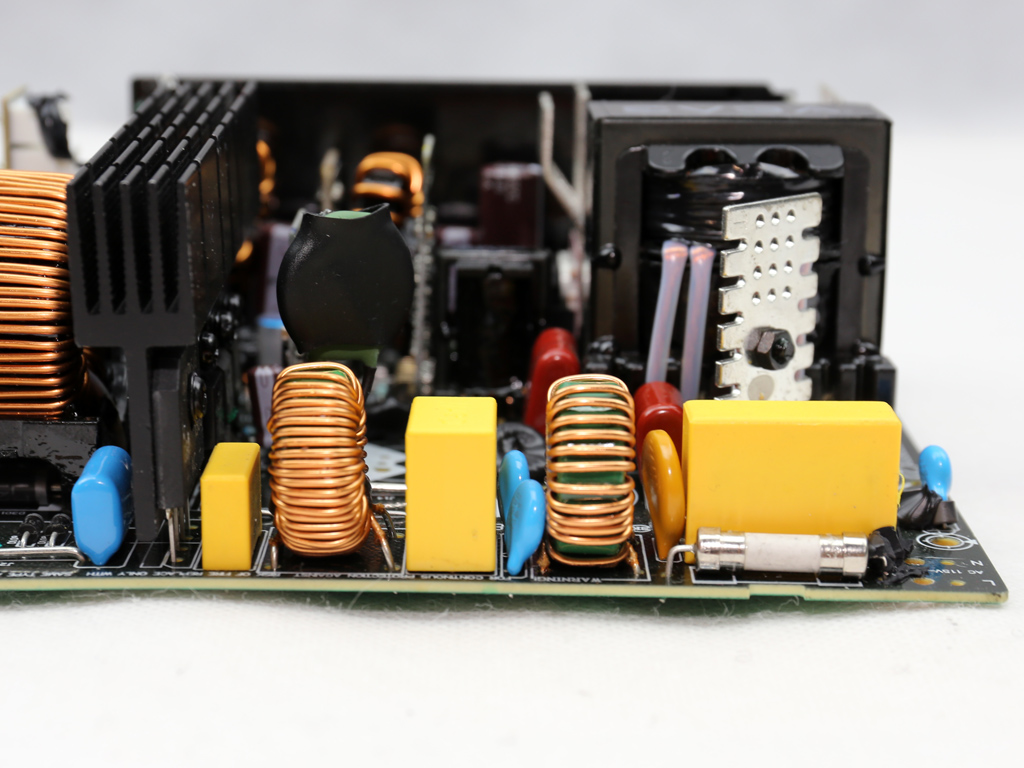
As usual for a Super Flower PSU, the PCB right behind the AC receptacle doesn't host any EMI-filtering components. The entire filter is on the main PCB, and it consists of five Y caps, three X caps, two CM chokes, and an MOV.
A large NTC thermistor is used for suppressing the inrush currents. It isn't supported by a bypass relay, even though that'd improve efficiency and allow the thermistor to cool down quickly.
The single bridge rectifier, a GBU1506, is installed on the APFC's heat sink.
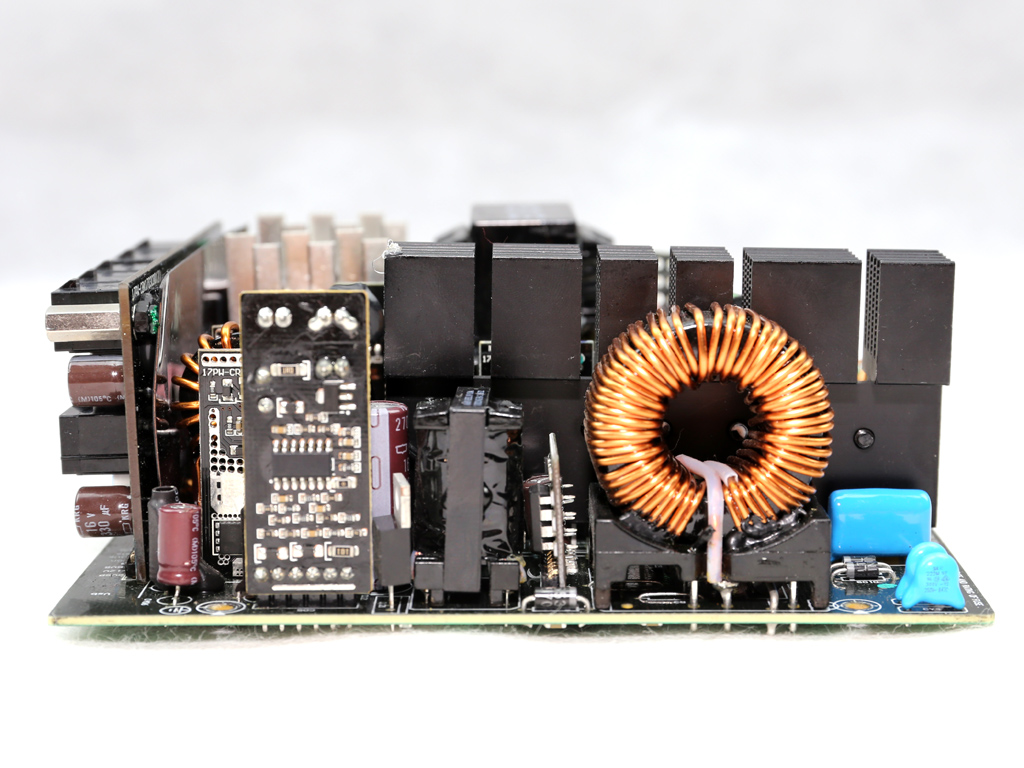
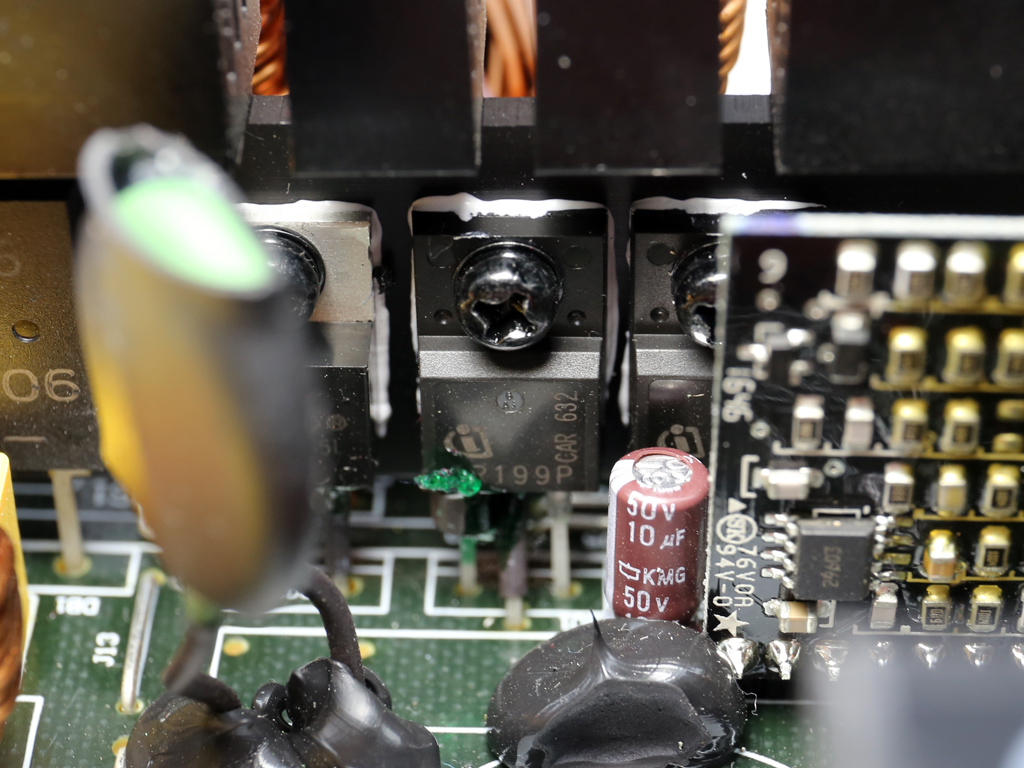
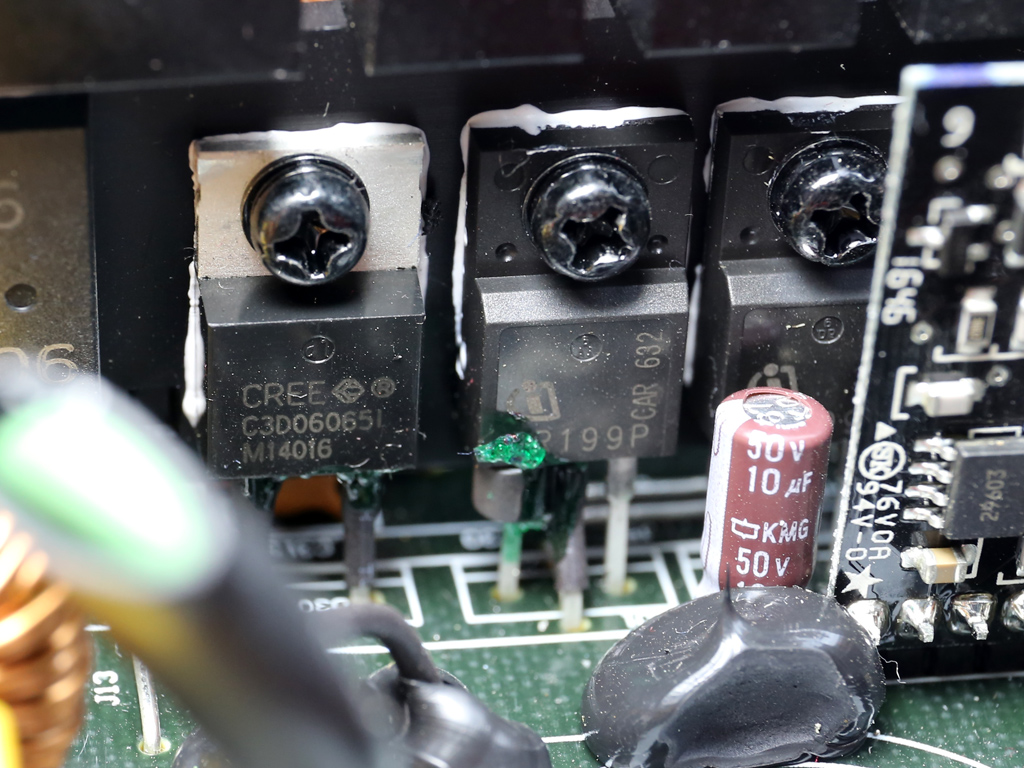
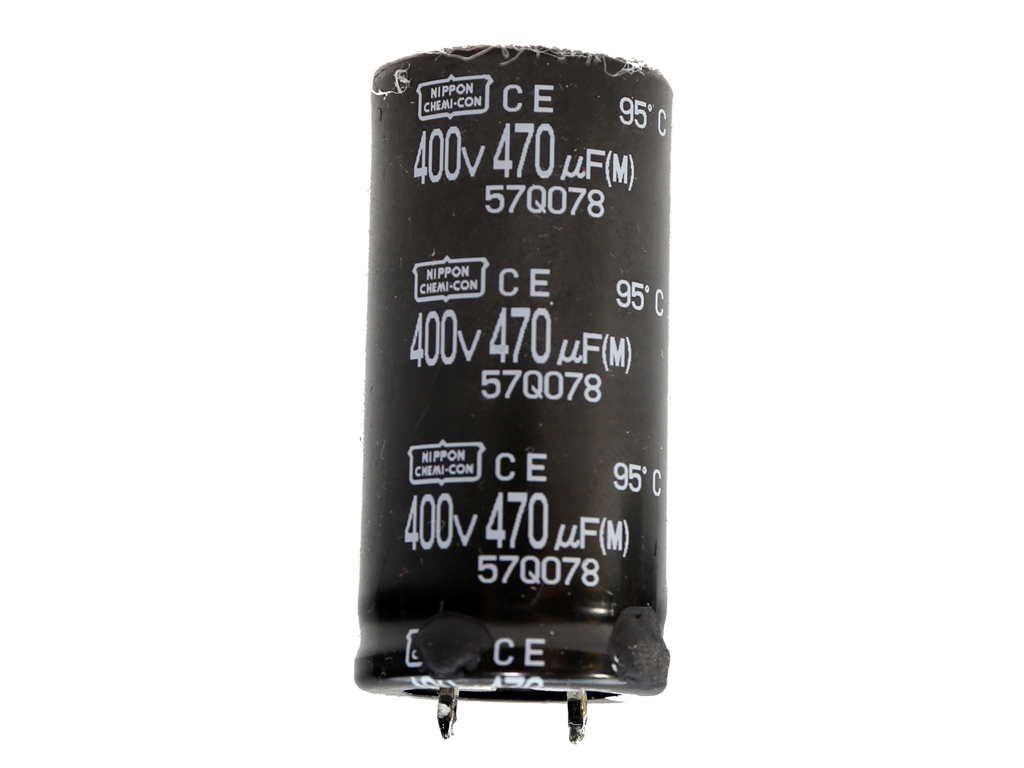
Two Infineon IPA50R199CP FETs are used in the APFC converter, along with a single CREE C3D06065A boost diode. The bulk cap is provided by Chemi-Con, and it has 95°C rating. Its capacity (470uF) might look low for a 750W PSU, but it is enough to allow for a long hold-up time.
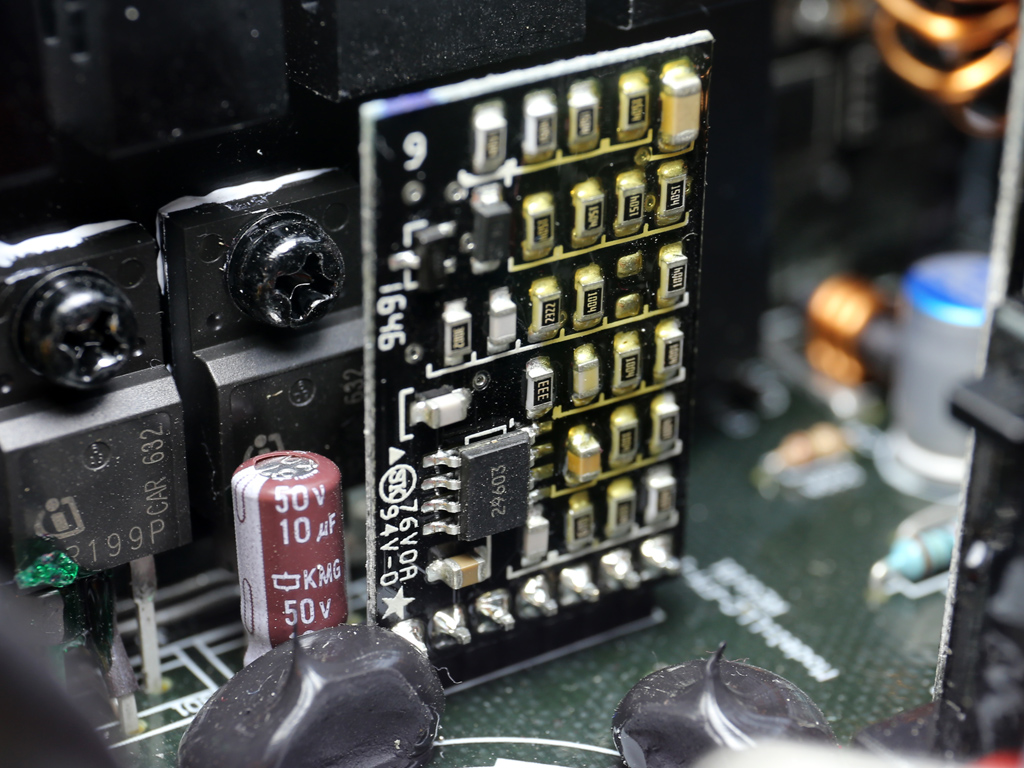
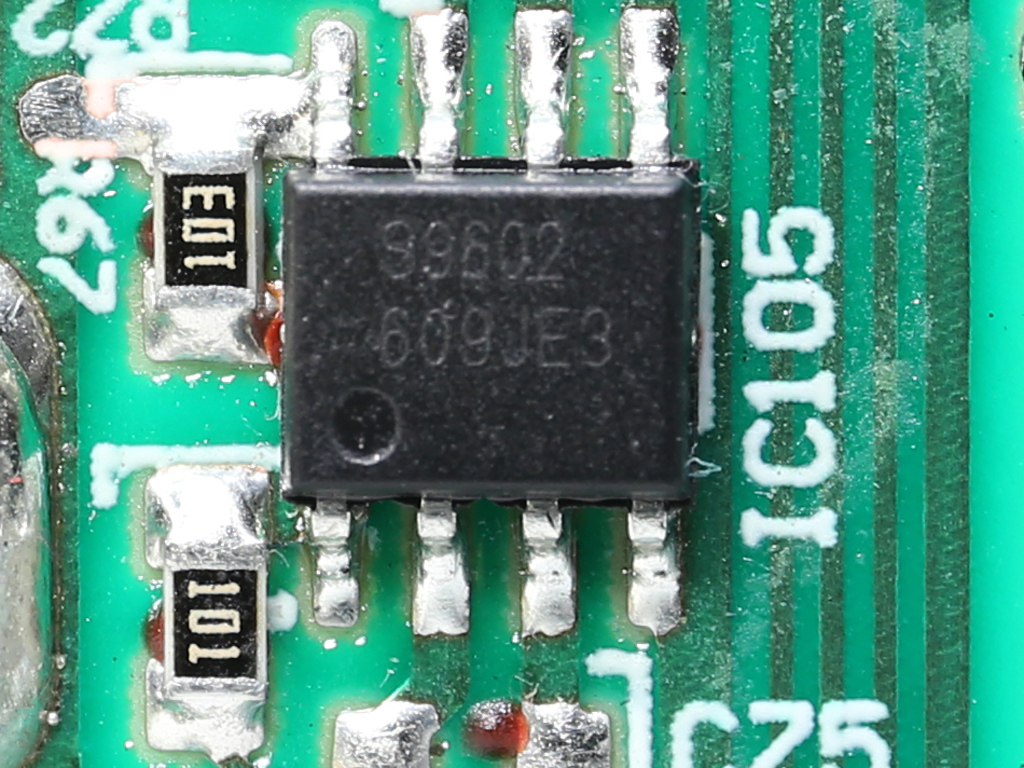
A small daughterboard hosts the APFC controllers (SF29603 and ICE3PCS02G). We also spot a S9602 on the solder side of the main PCB, which is a controller IC for active CCM power factor correction converters.
Get Tom's Hardware's best news and in-depth reviews, straight to your inbox.
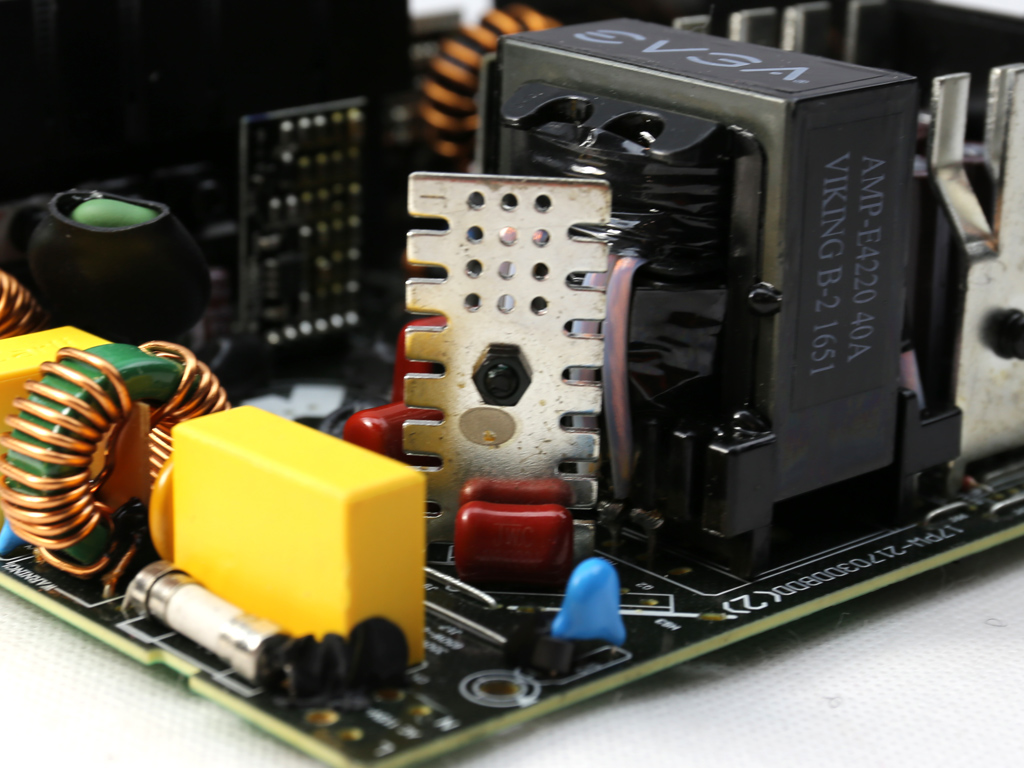
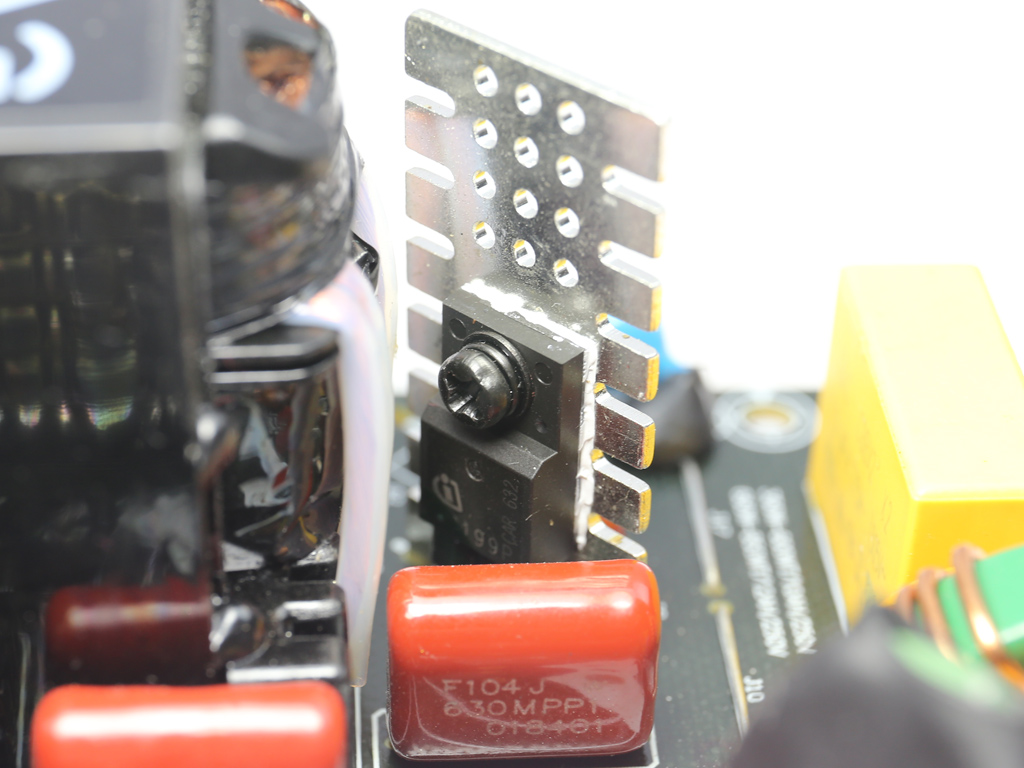
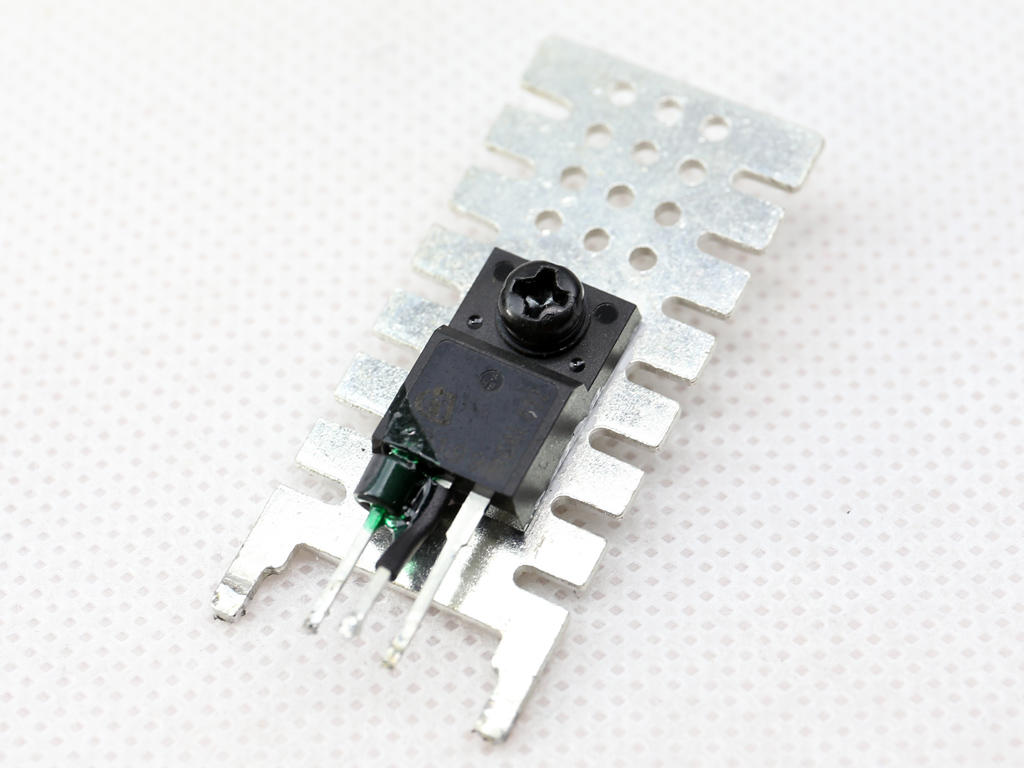
The primary FETs, two Infineon IPA50R199CPs, are bolted onto an equal number of small heat sinks.
The resonant controller is an SF29605 IC that likely handles the unit's protection features. On the same board, there is also an LM339A voltage comparator that supports the main supervisor IC.
On the secondary side, a couple of small heat sinks hold four A&O AOT240L FETs (the 850 B3 uses six of the same FETs), responsible for regulating the +12V rail.
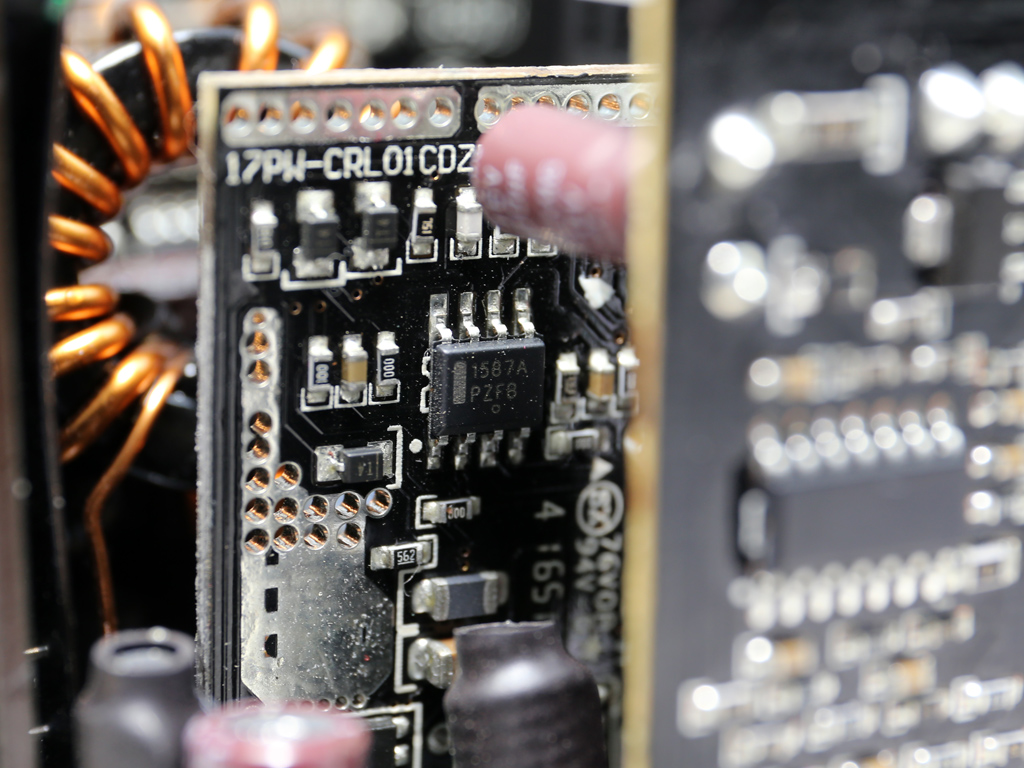
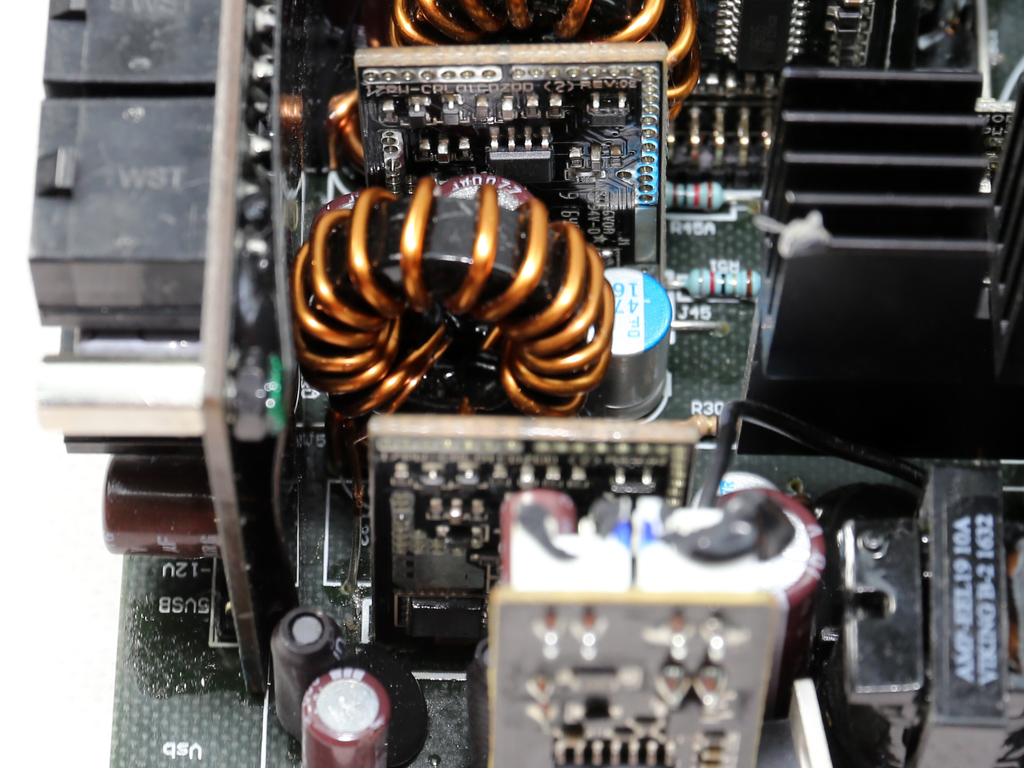
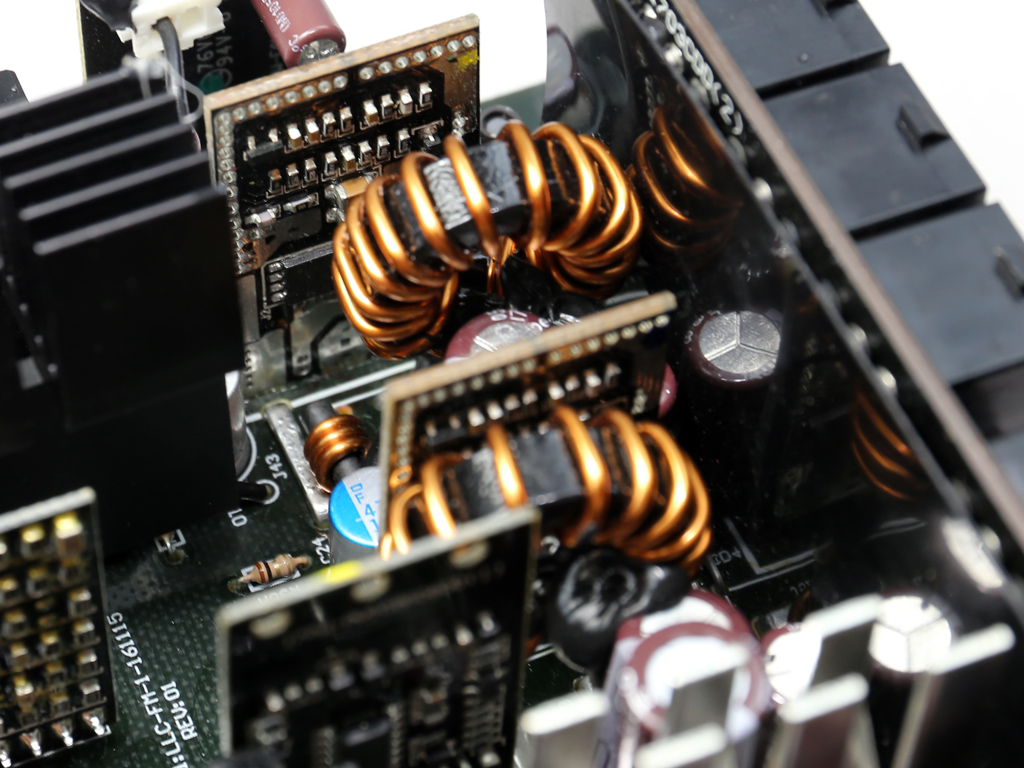
A couple of DC-DC converters generate the minor rails through the +12V rail. Each converter uses a NCP1587A PWM controller and four AON6516 FETs.
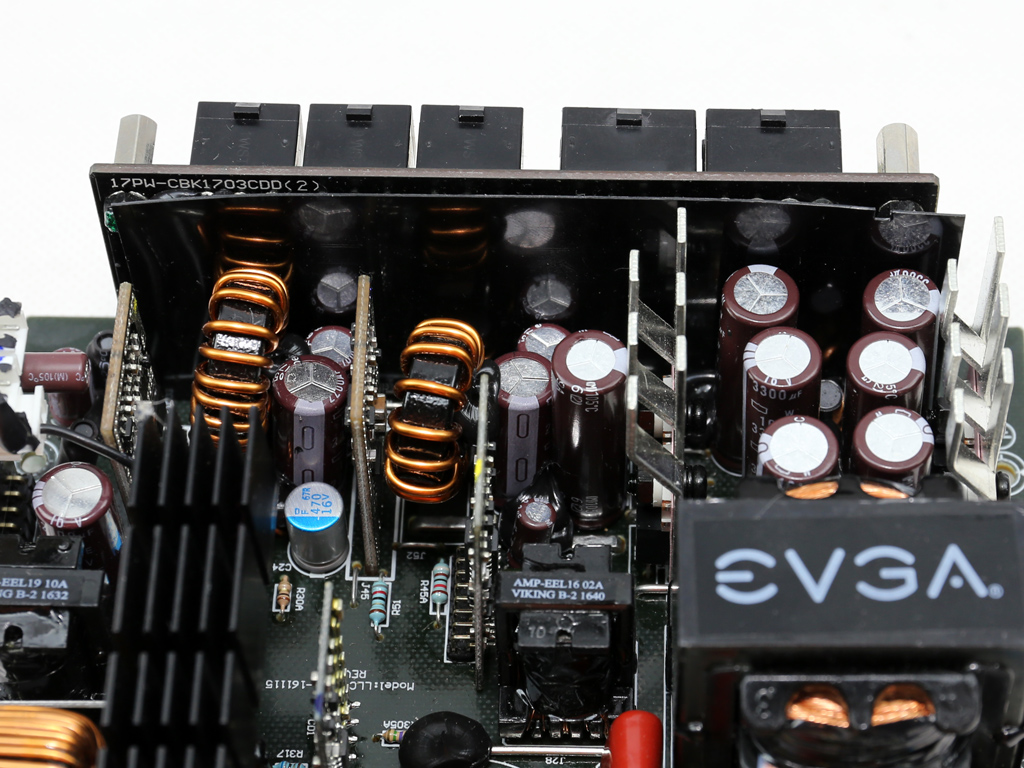
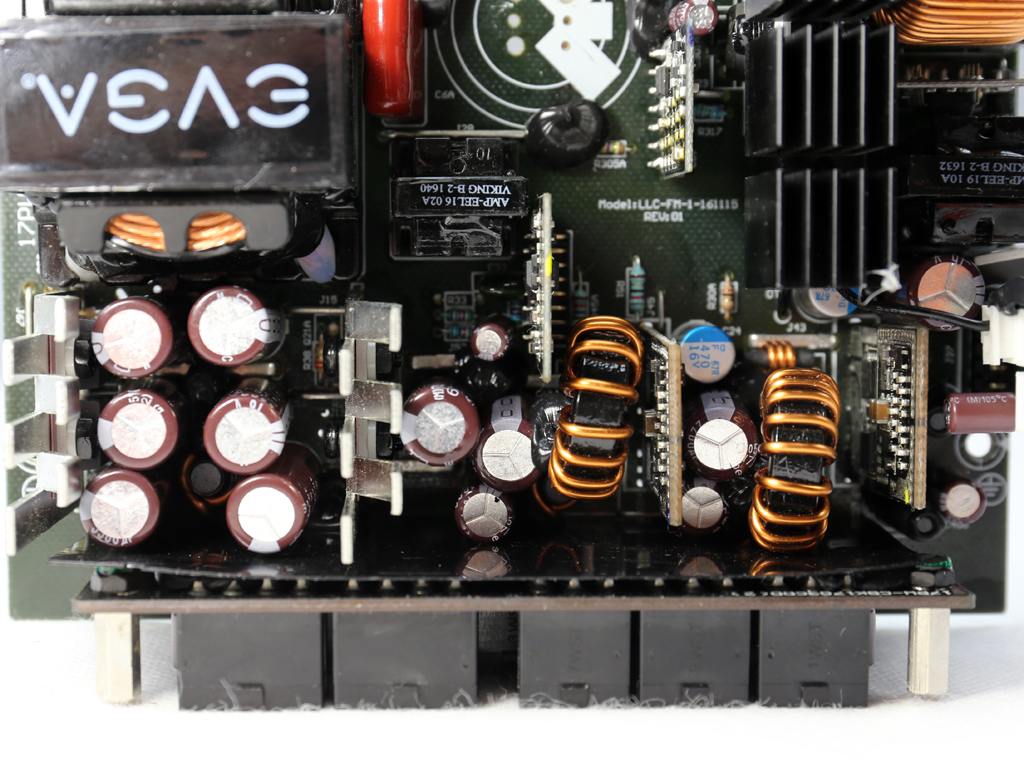
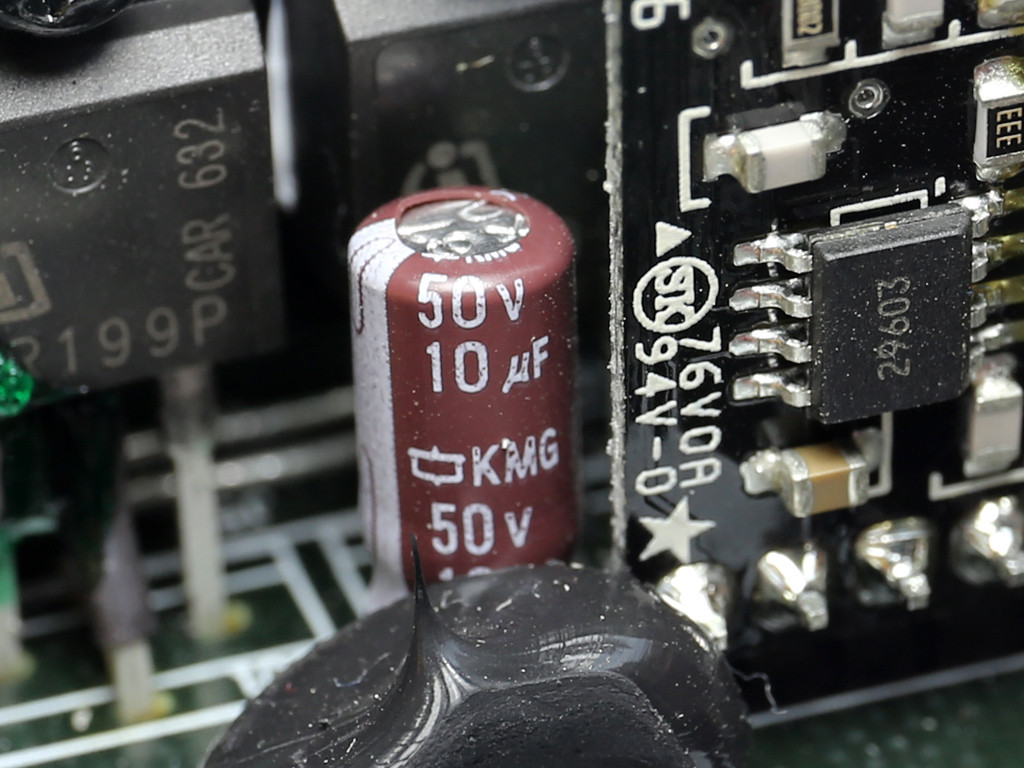
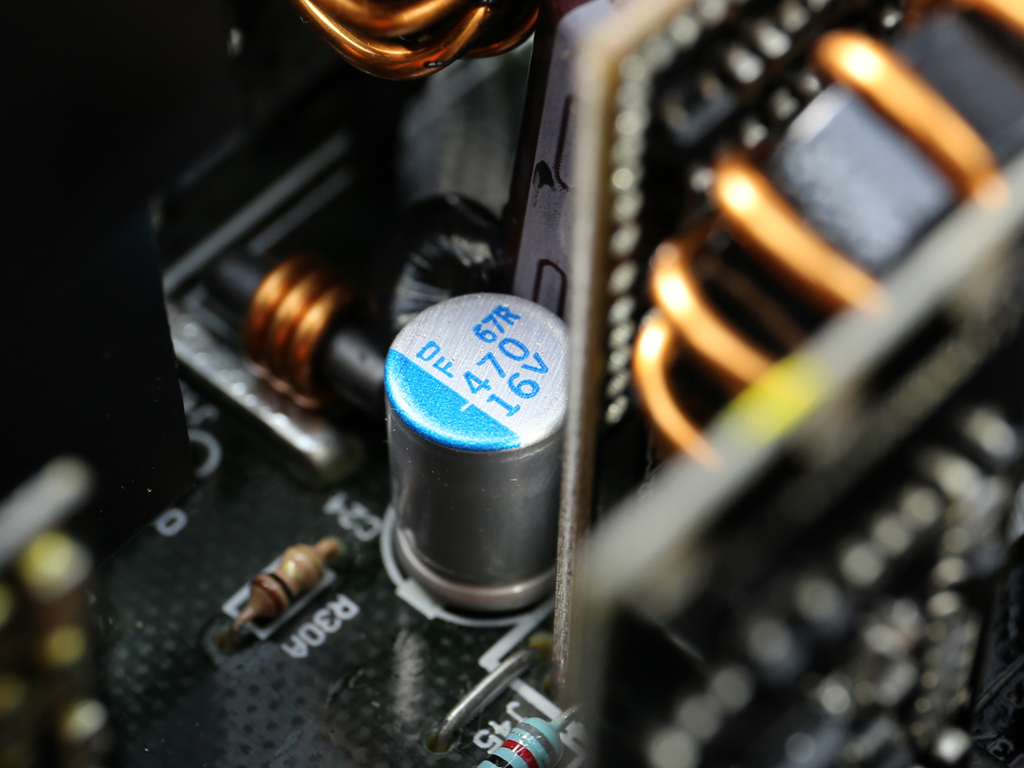
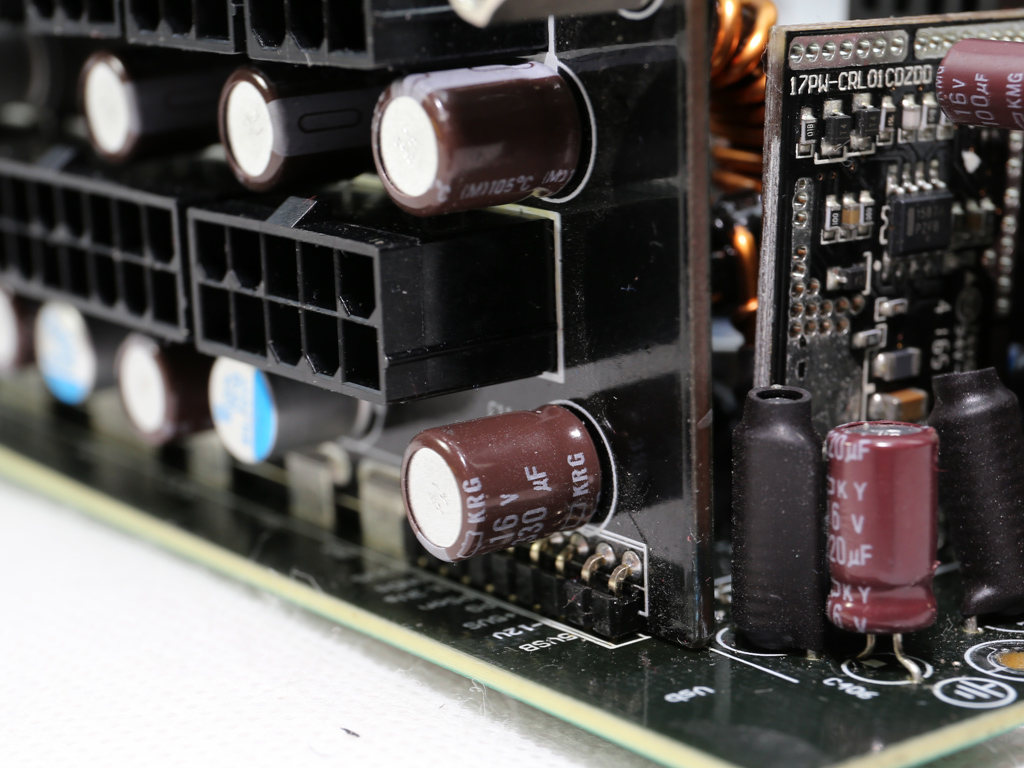
All filtering caps (electrolytic and polymer) on the secondary side are provided by Chemi-Con. This is a major upgrade compared to the lower-capacity B3 PSUs that use Teapo caps.
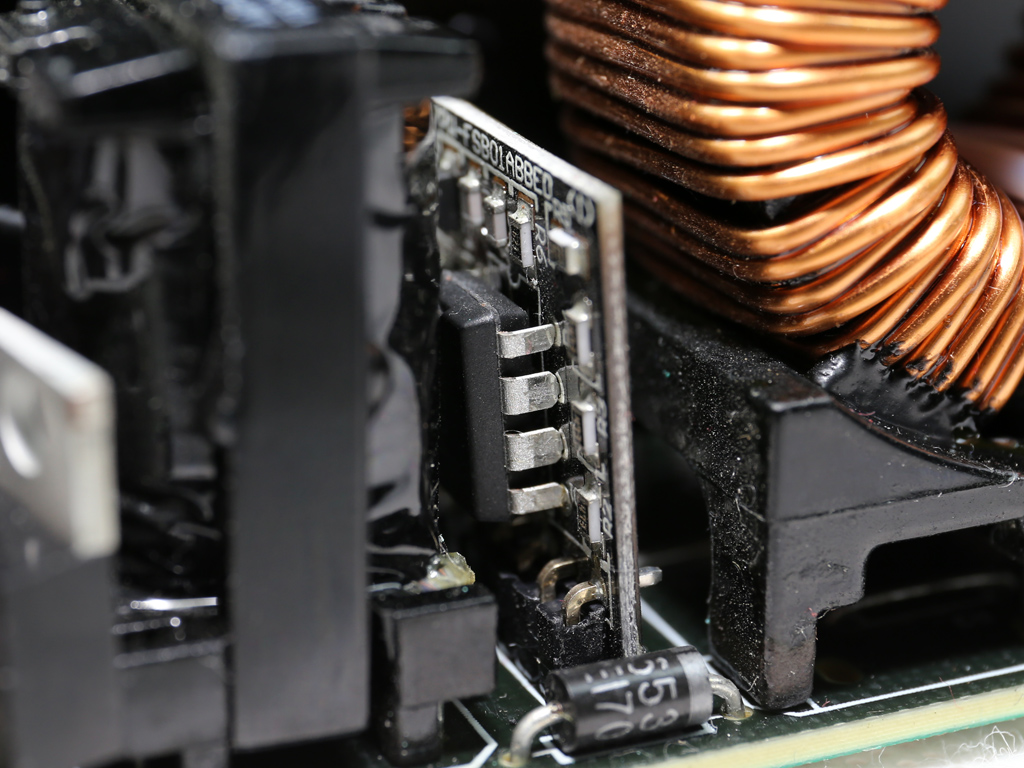
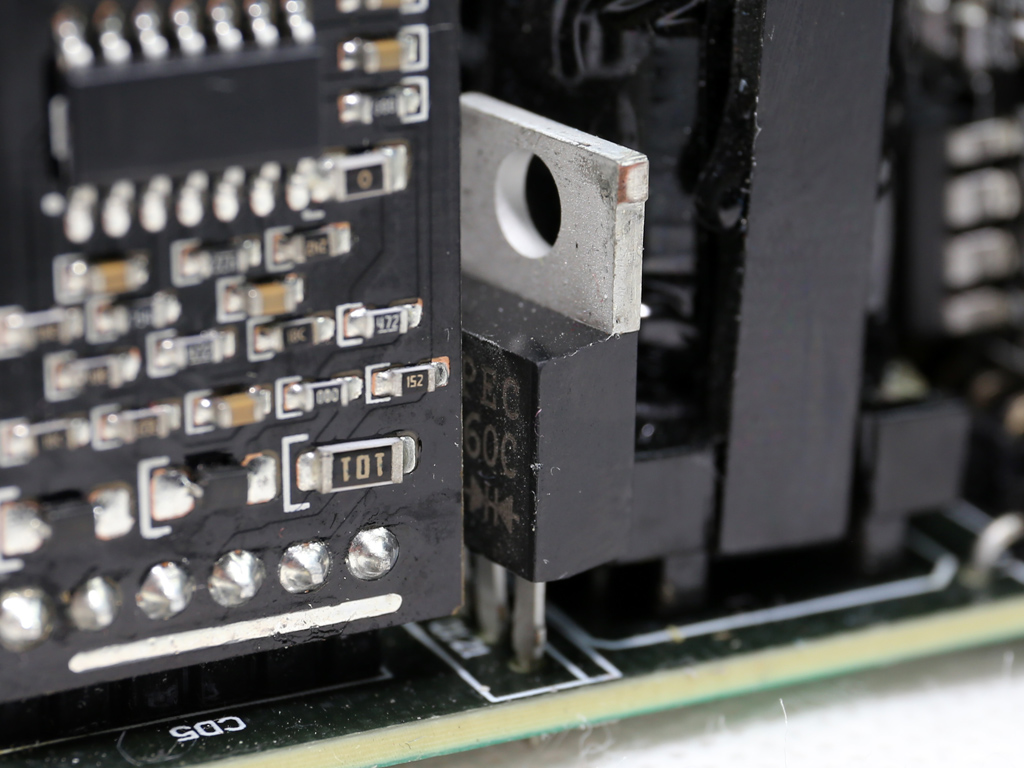
The 5VSB circuit is generated through a Mospec S10C60C SBR. The PWM controller is a propriety 29604 IC.
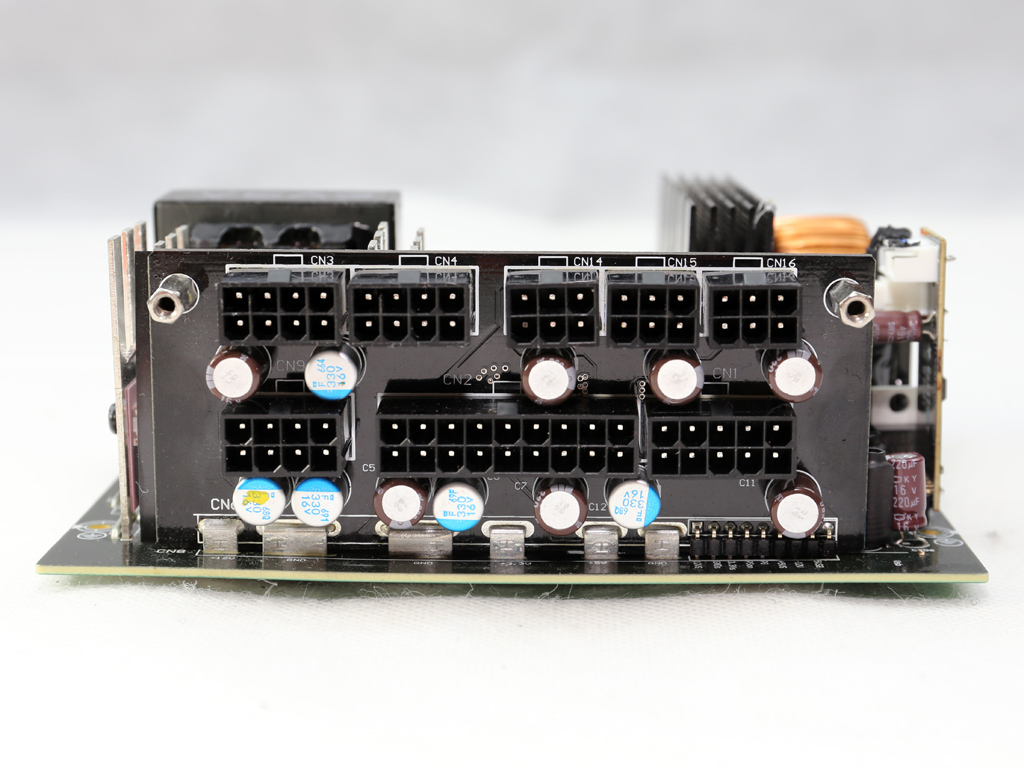
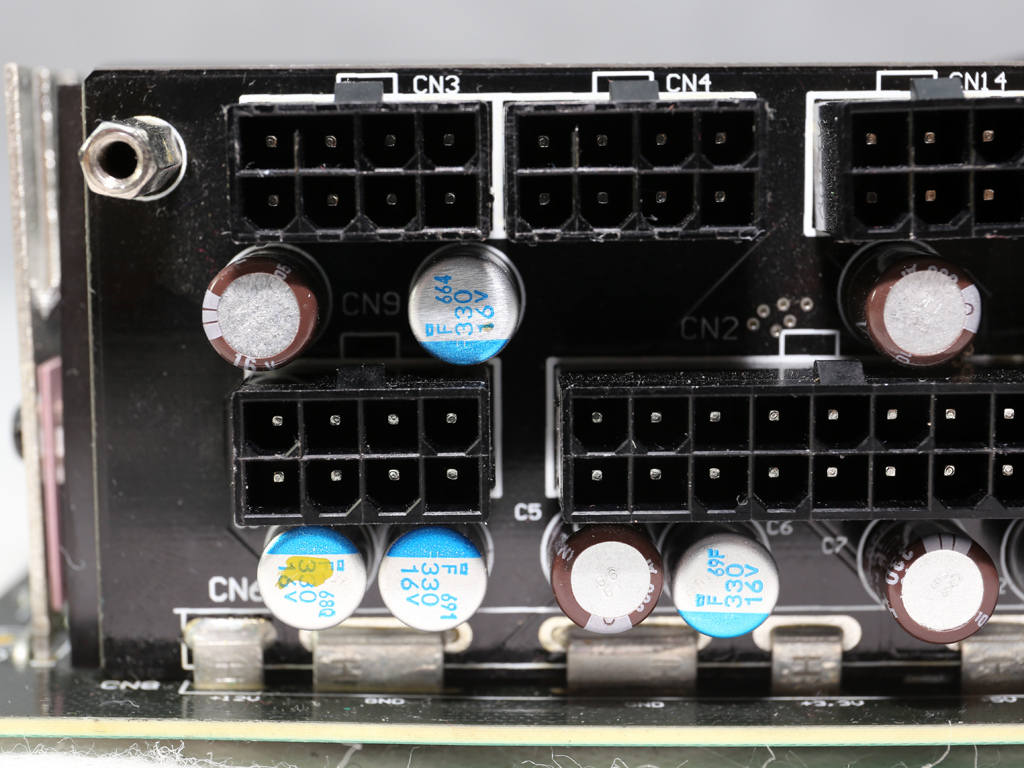
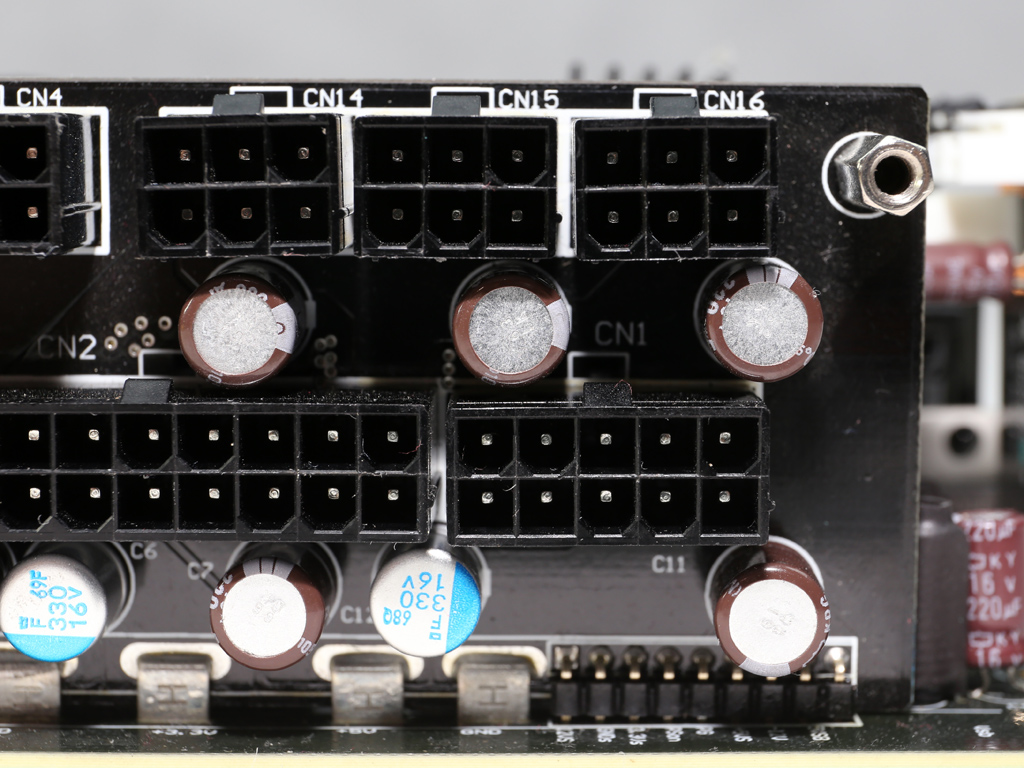
Several Chemi-Con KRG electrolytic and polymer caps form an extra layer of ripple filtering on the front side of the modular PCB. The KRG caps have a low lifetime (1000h @ 105°C). However, they don't have to endure much stress in this area.
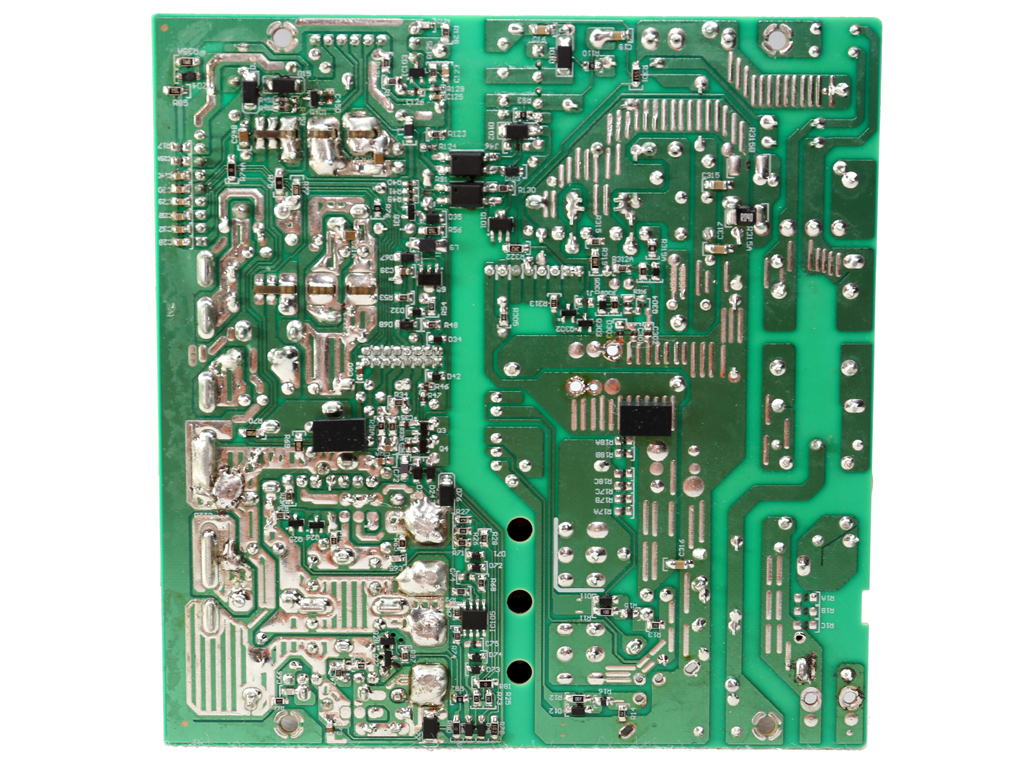
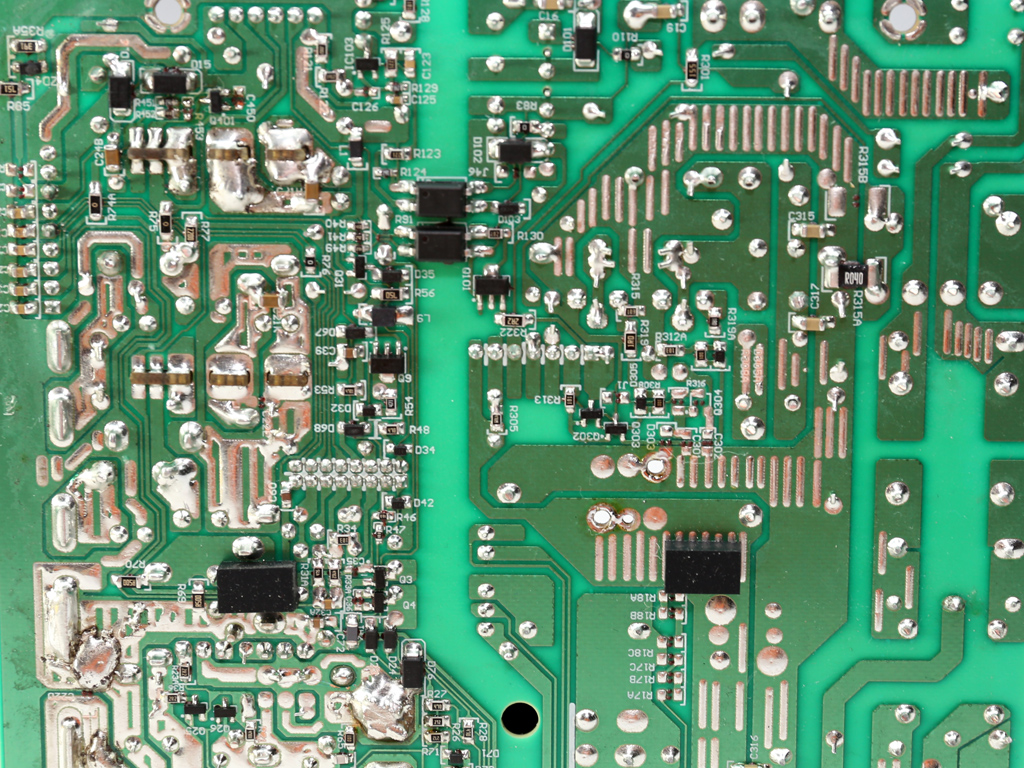
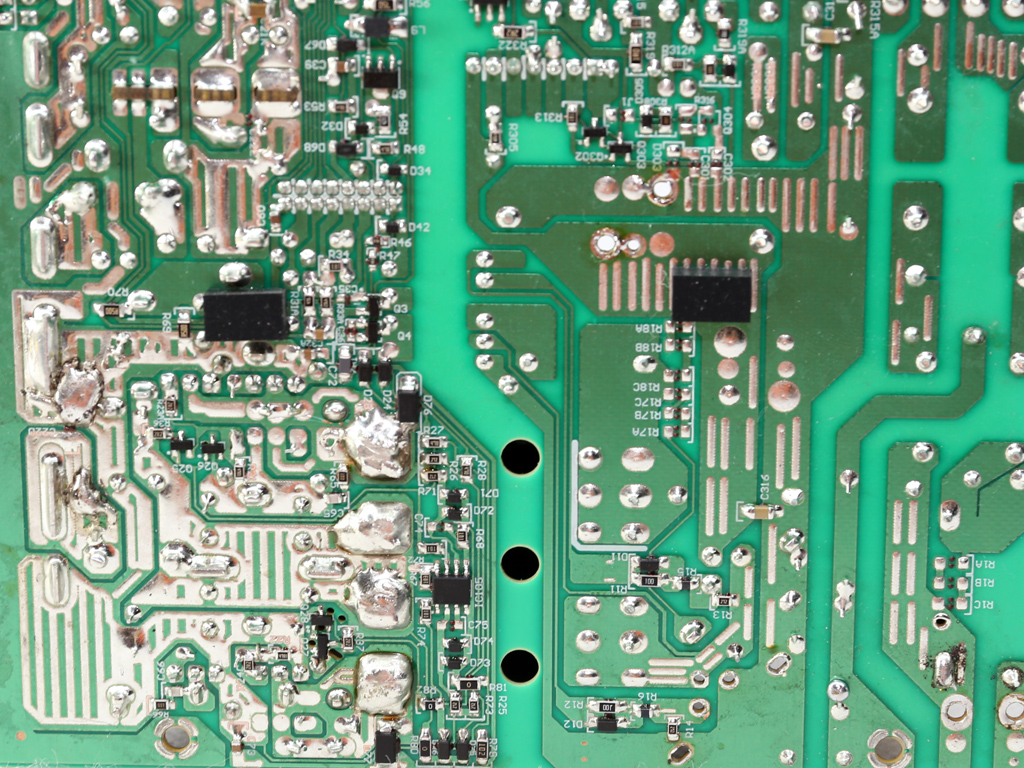
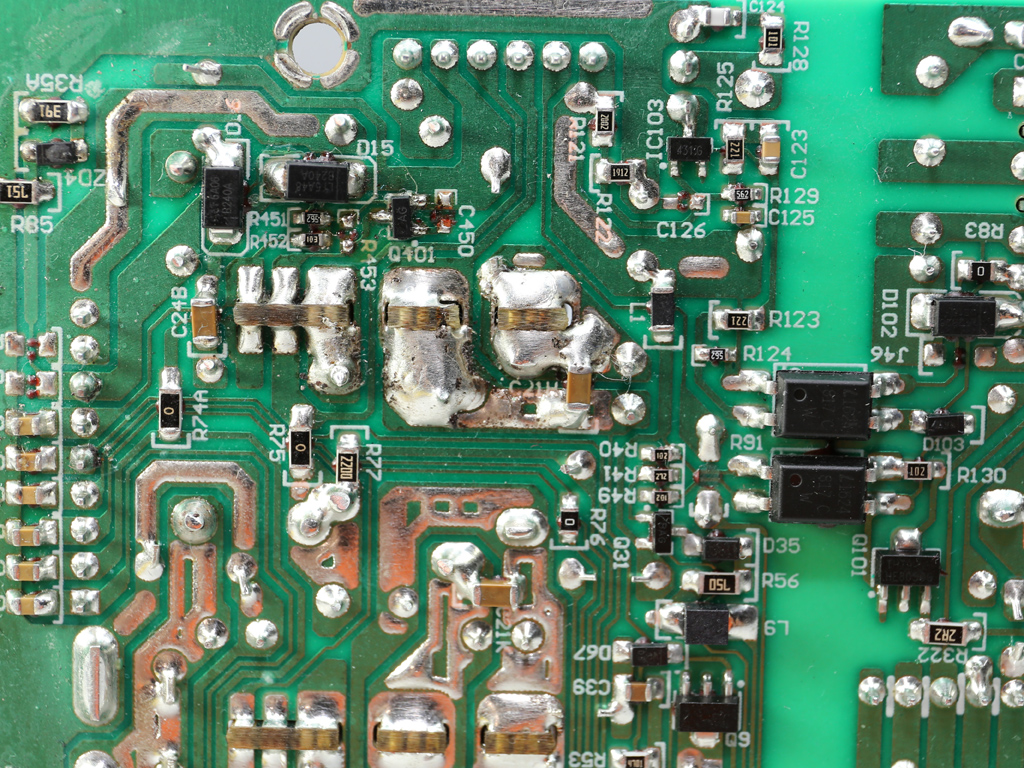
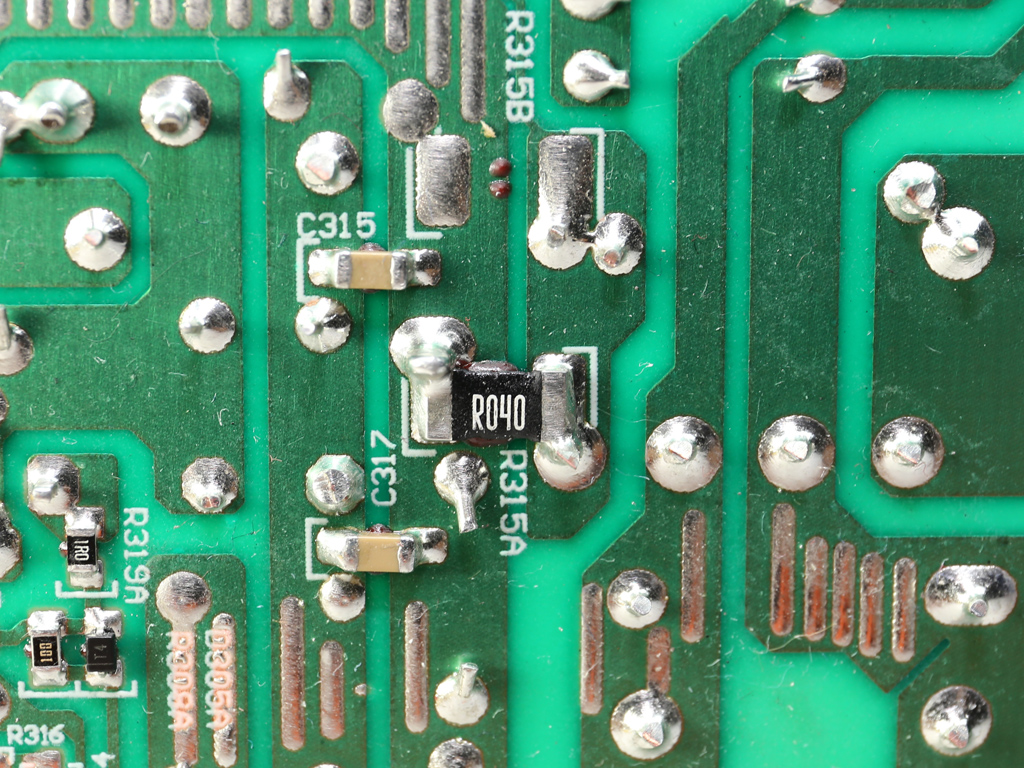
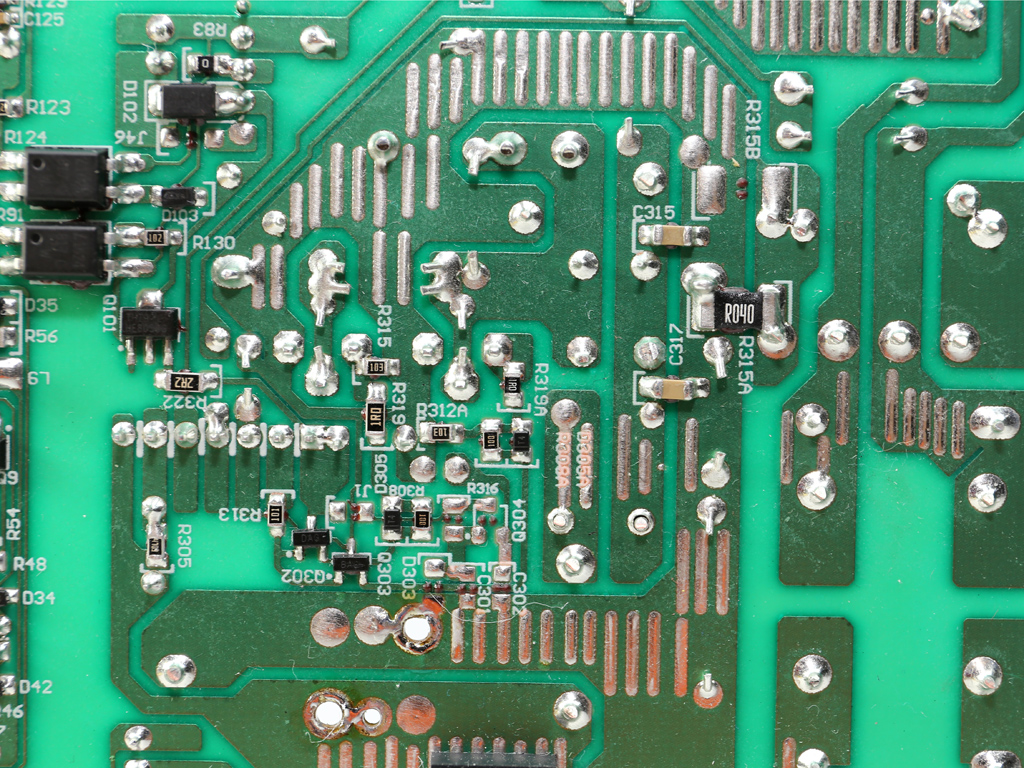
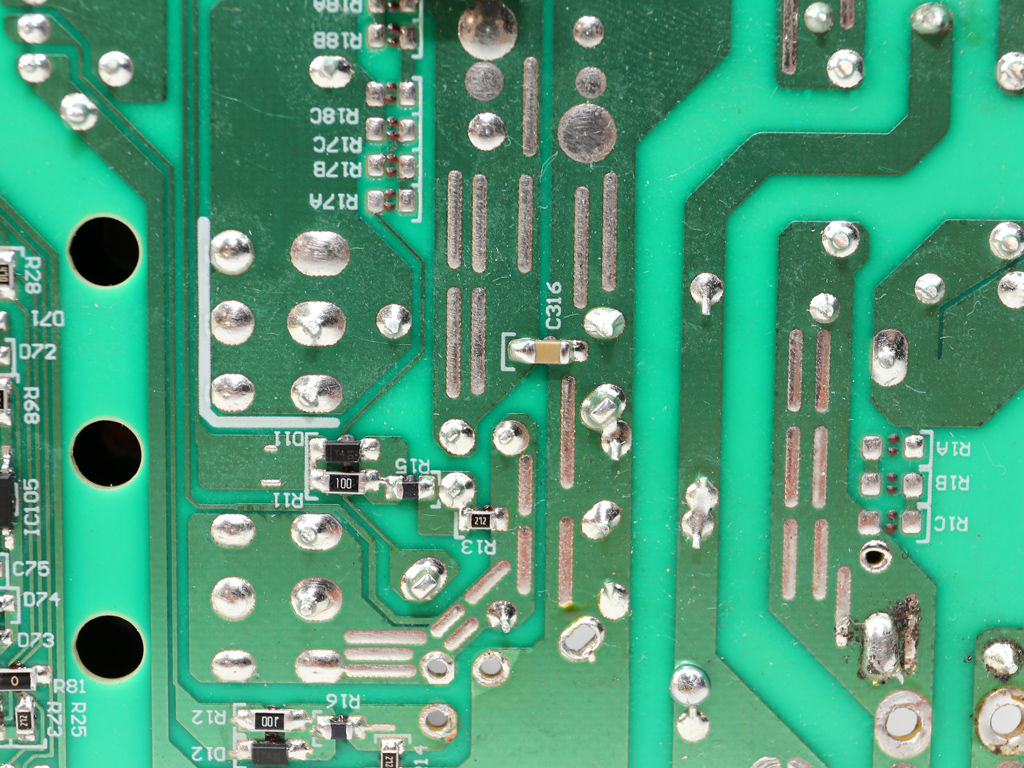
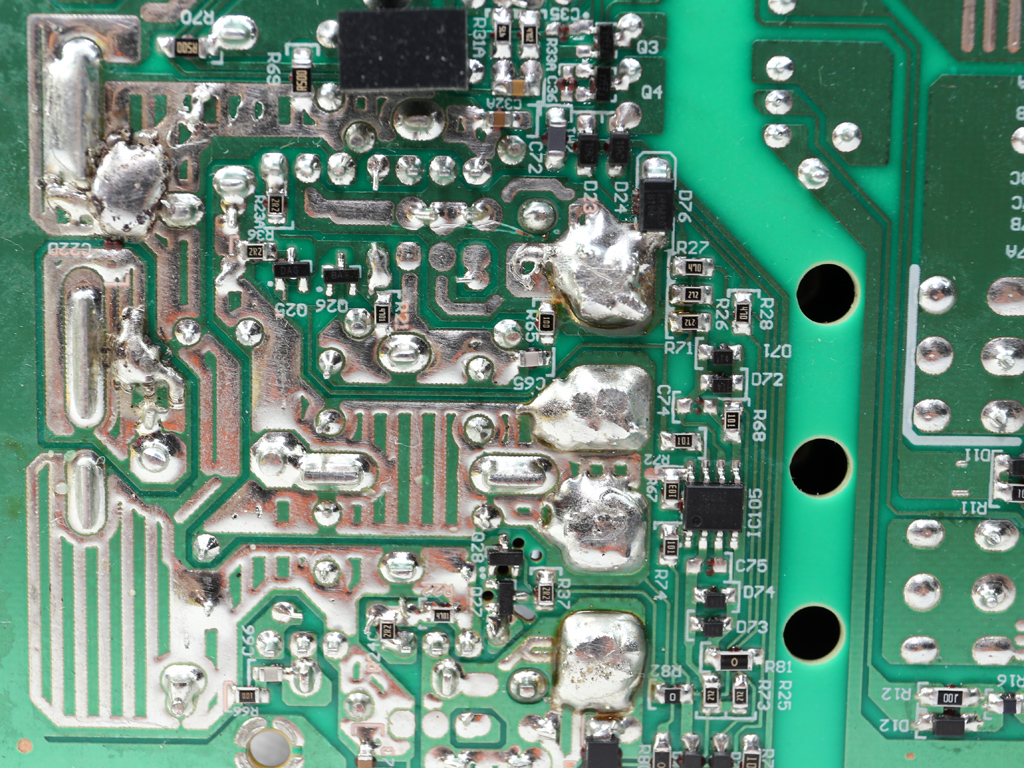
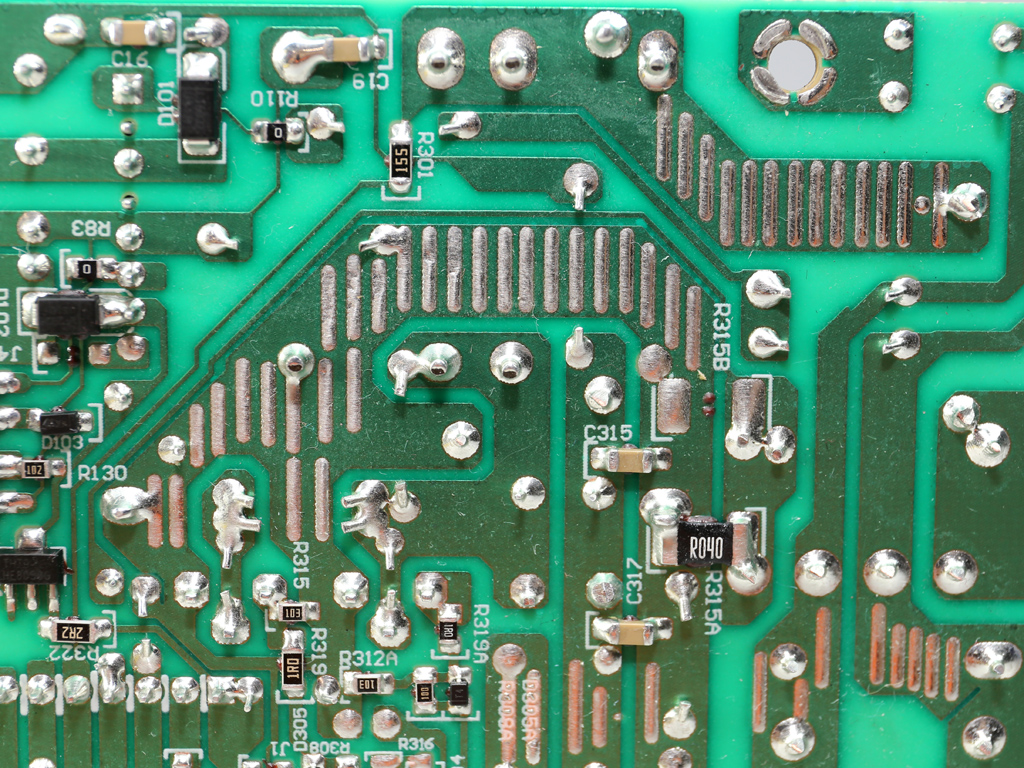
Super Flower's build quality is mediocre. Similar to what we saw on the 850 B3, there are many sloppy soldering joints and some long component leads that almost come in contact with nearby PCB traces. This reminds us of the early days when Super Flower's platforms had terrible soldering but still somehow performed well.
Strangely enough, we've noticed that review samples sent to other reviewers sport much better soldering quality than ours, which was purchased at retail.
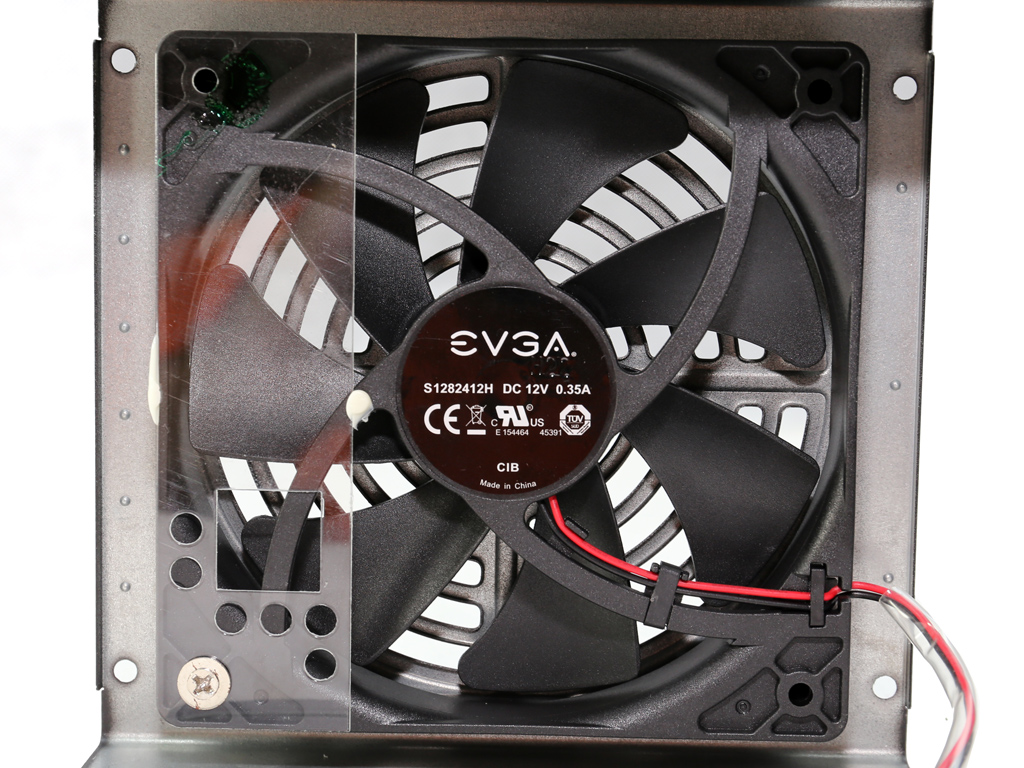
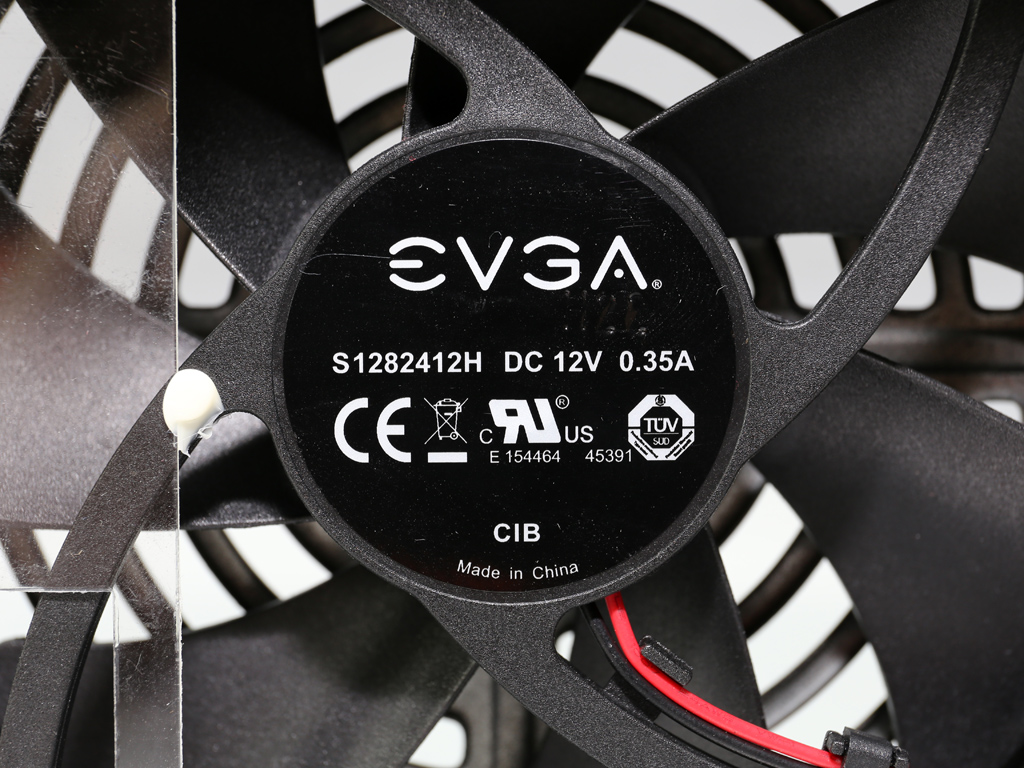
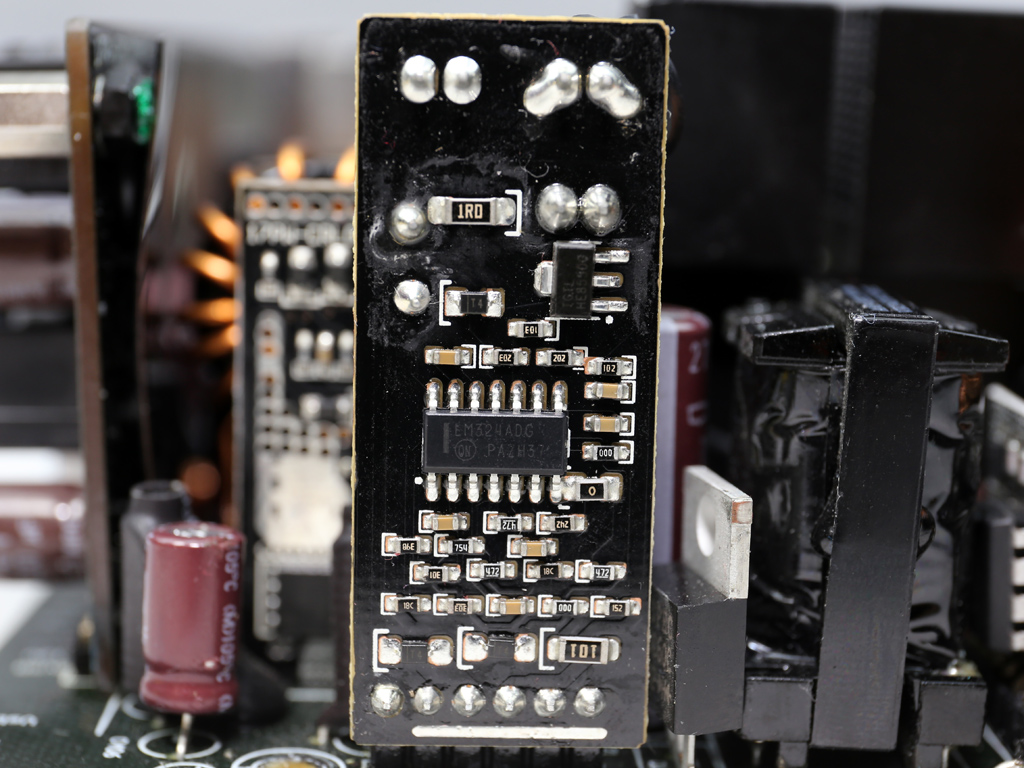
The fan's model is S1282412H. It measures 130mm across and uses a sleeve bearing, which isn't ideal for use in a PSU. Its controller is the same as what we've found in other Leadex platforms, and it is installed on a vertical PCB that'll snap off if you aren't careful.
MORE: Best Power Supplies
MORE: How We Test Power Supplies
MORE: All Power Supply Content
Current page: Teardown & Component Analysis
Prev Page Packaging, Contents, Exterior & Cabling Next Page Load Regulation, Hold-Up Time & Inrush Current
Aris Mpitziopoulos is a contributing editor at Tom's Hardware, covering PSUs.
-
Dark Lord of Tech Several complaints in the forums from builders , very disappointed with the B3 series.Reply -
logainofhades Yea, I will no longer recommend a B3 series PSU. Seasonic and Corsair's new CX450m-650m are better options right now.Reply -
SinxarKnights The solder quality between review samples and retail samples is pretty shady in of itself IMO.Reply -
10tacle The fact that EVGA hasn't even responded to the 450W B3 fail test that was back in August is highly disturbing in an of itself. It is inexcusable to just ignore a tech website's inquiry (and serious concerns) as to why a series of their products are failing. I know EVGA's customer support is top notch in the industry (I've had to use it), but their public/customer relations team needs an overhaul. If I were the CEO, I'd be calling for some heads and light a fire under some backsides to ride Super Flower hard for a fix.Reply -
maxwellmelon with out them identifying the failed component how can they say that the PSU not turning back on after a OPP is not intentional setup because it being shut down at 120% of load is about right like they said. It could be designed that way as a safety feature. and a way to sell more psu because when you try to RMA it they can say you overloaded it and is not covered. Operating above 750 watts is above the psu limits and having a one time OPP shut down is still technically having OPP on it.Reply -
Aris_Mp When a PSU is broken after OPP's triggering, it is not a feature but a problem. OPP along with the rest of the protections is there to protect the PSU in order not to break when a user goes wild with it.Reply -
Lutfij The third paragraph of the last page reminded me of what cars with all souped up aftermarket parts but a crappy driver often results with - disaster.Reply
EVGA Have recently come under flack on other forums as well and their response isn't, erm, admirable. Nice work with the review, Aris, keep it up! -
rtansey378 They must be having issues in the CS department. After dealing with them for an RMA I found their website to be down totally twice and fundamentally broken in important other areas during RMA submission. I was getting different answers from different people to basic questions and there were unreturned emails that led to other issues - it was kind of a nightmare overall that went on for a month. Even after being expedited to a manager of some type it wasn't much better. And their 2-3 advance RMA uses UPS ground so it is not 2-3 days at all. It routinely takes them 3 days to get the replacement into UPS' hands and then UPS takes their sweet time. People also use their expensive desktop PCs for work. I went through that twice as they sent the wrong unit back the first time.Reply
They charge a premium largely on their CS reputation. I guess they are now hoping people won't have to use it and learn otherwise. Being branded as a good guy in the CS is huge. Being branded as a bad guy is a death sentence. You'd think they would at least return major website emails and spin use some good old corporate spin. They won't even do that. Makes you wonder.
I hope they figure it out. But Im no longer going to pay their premium. If they have the cheaper product then I would still consider them. That will rarely be the case. They did some nice patented stuff with their GTX 1070/1080 revisions so maybe they are putting all their eggs in that basket. -
mlee 2500 Wow, I expect better from something EVGA puts their name on.Reply
THANK YOU tom's HARDWARE for performing objective tests on multiple samples to keep us informed and the vendors honest....
I seriously could have seen myself buying my next PSU based on EVGA's reputation alone. I won't make that that mistake now.
